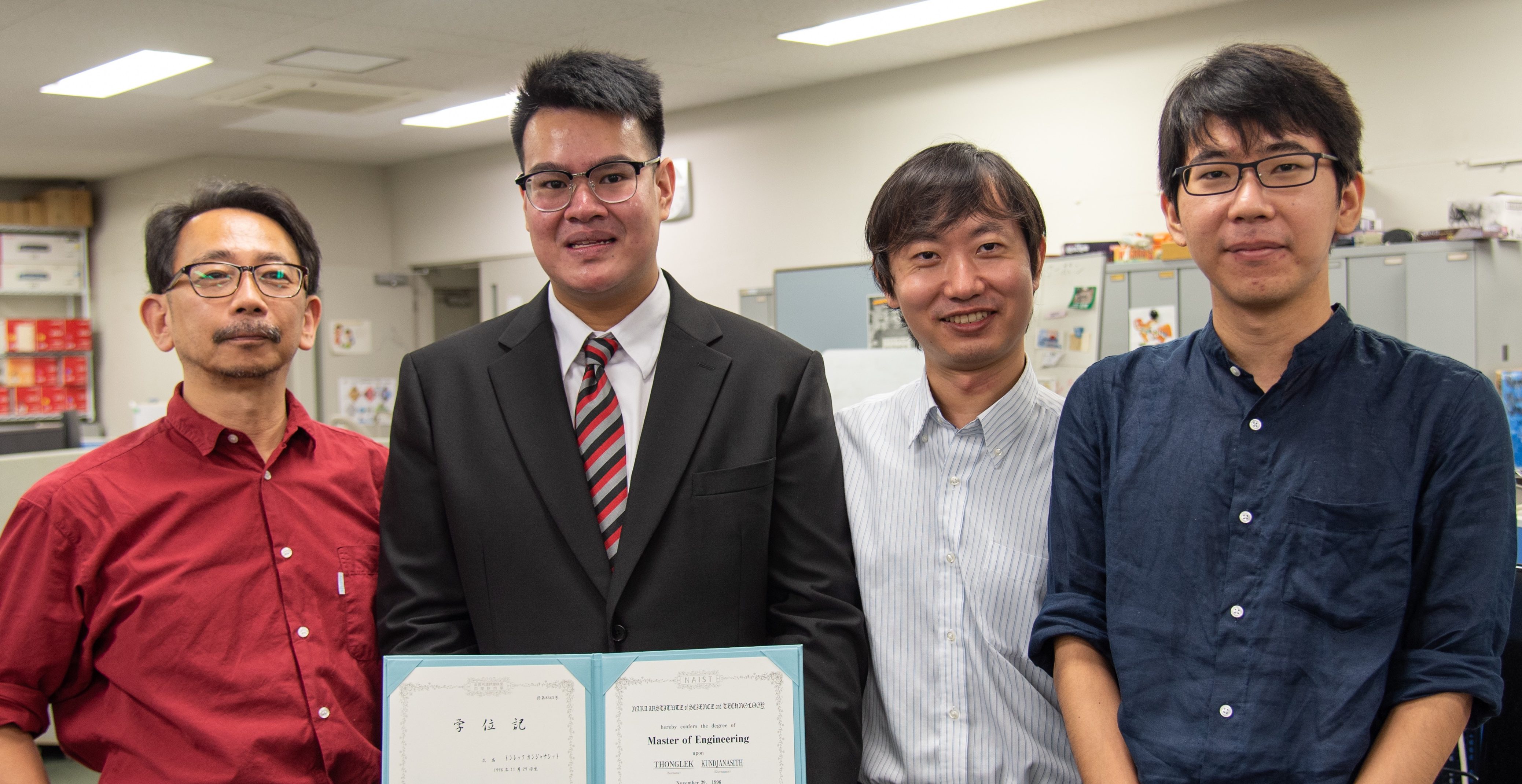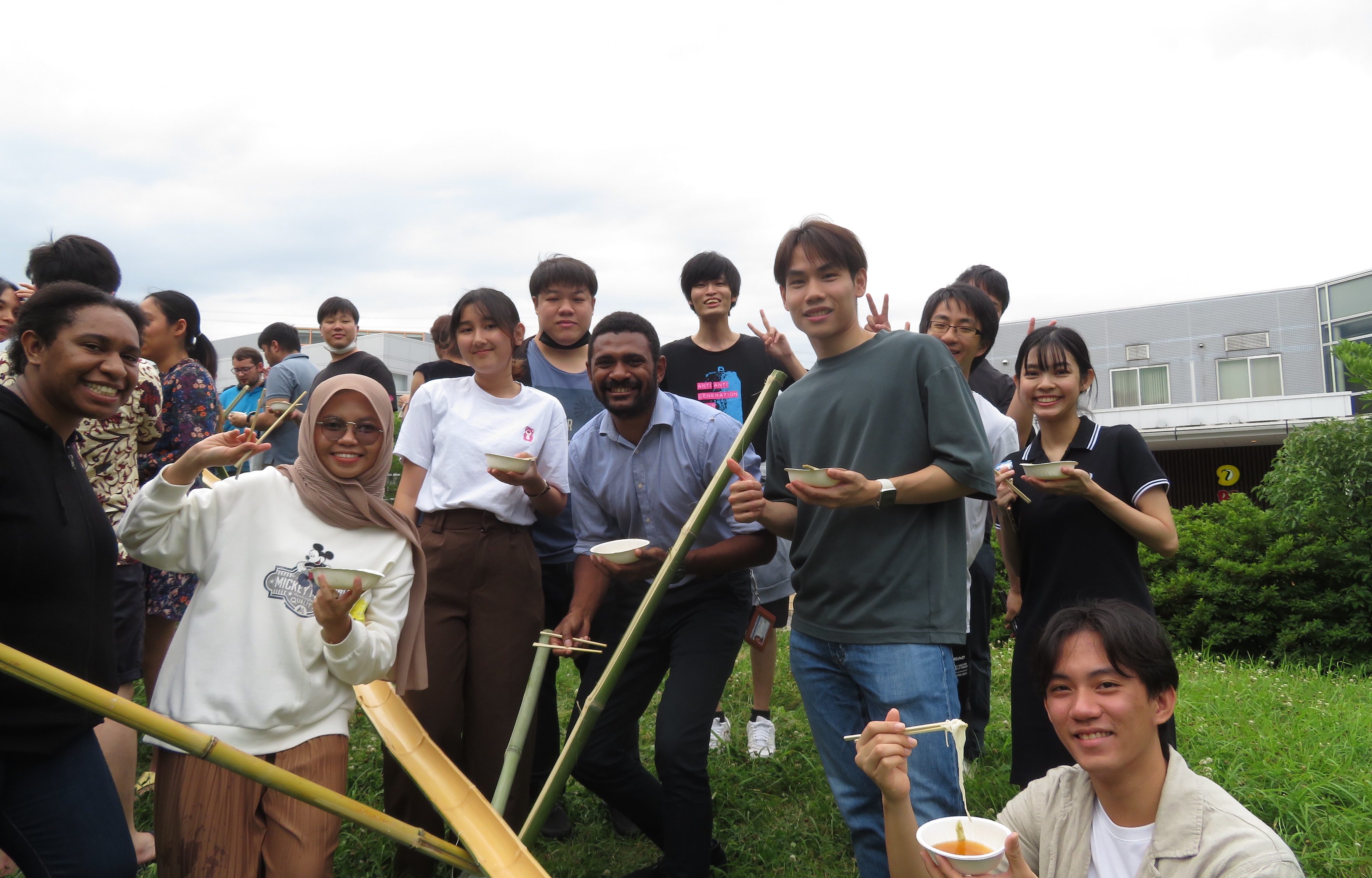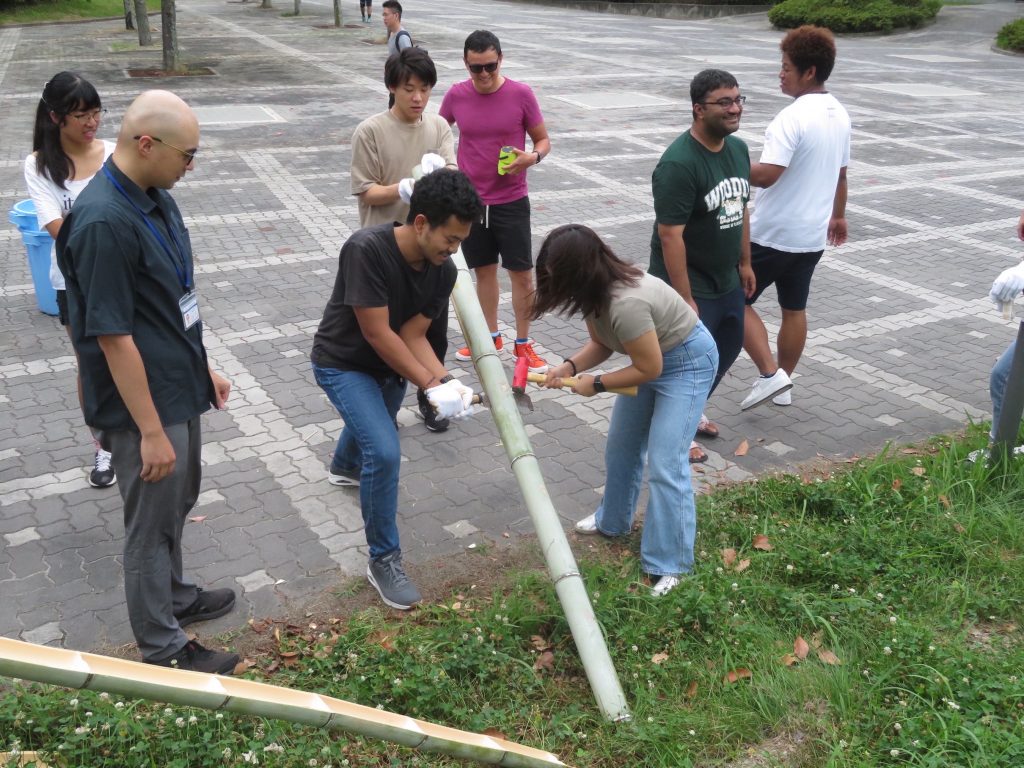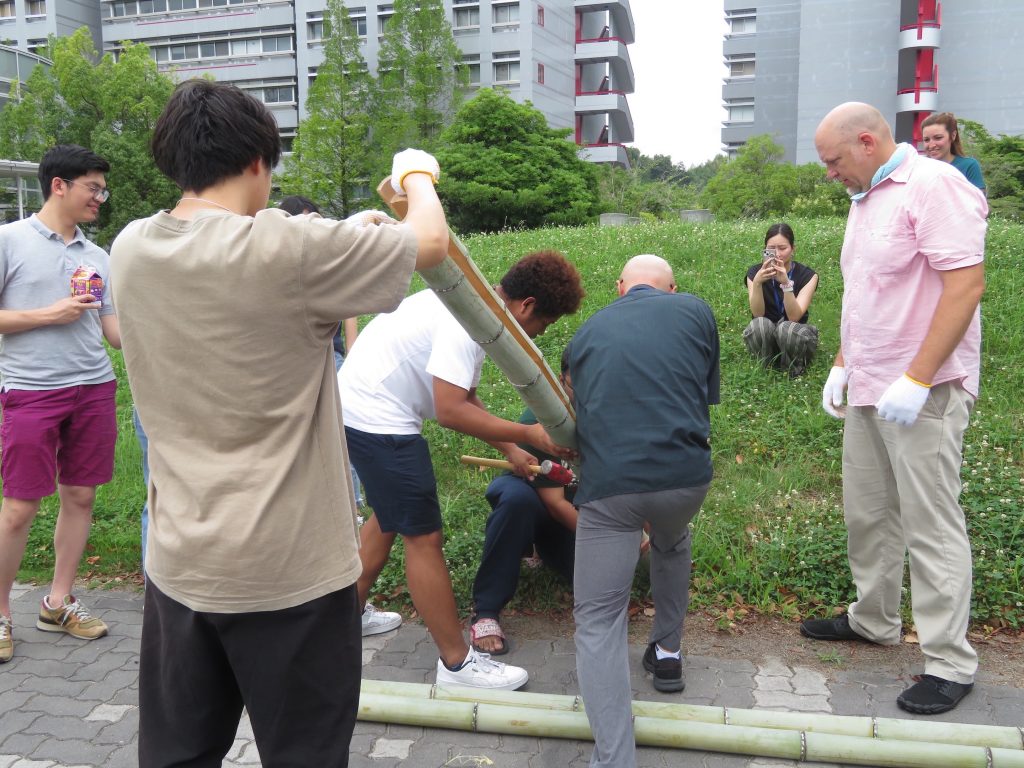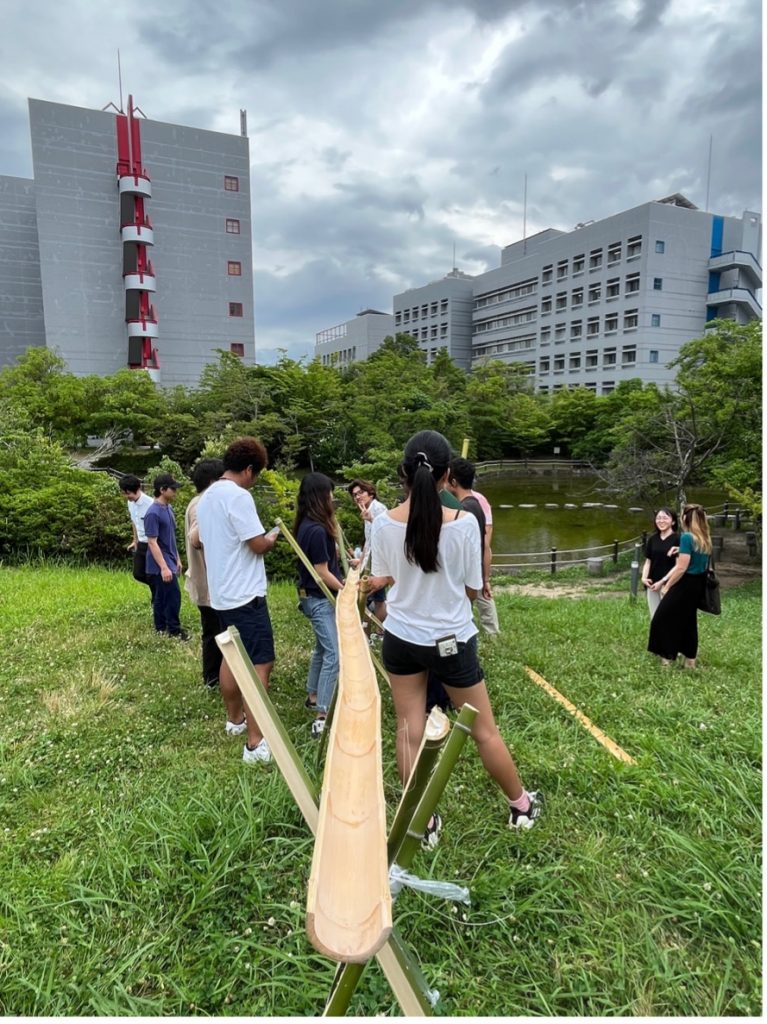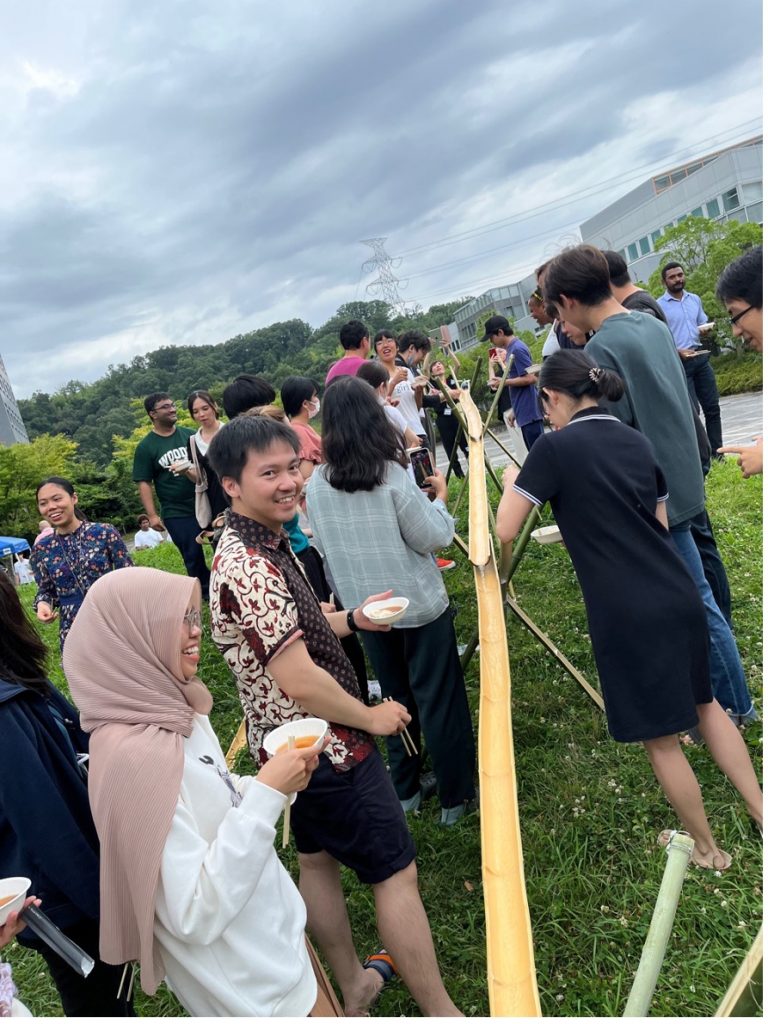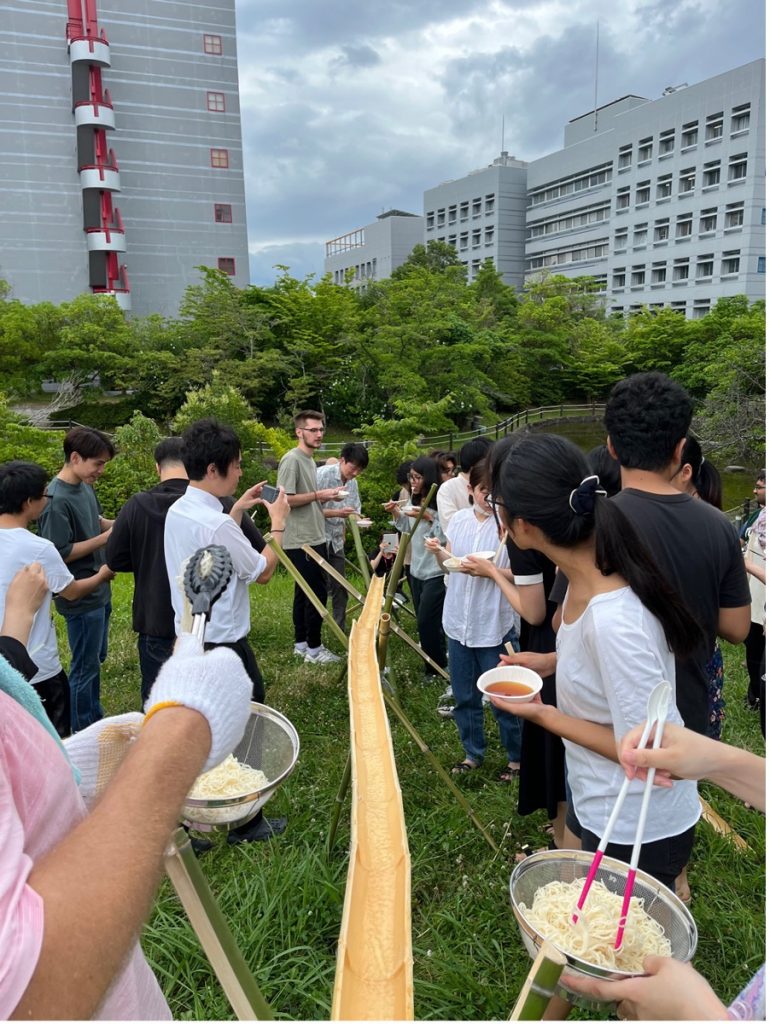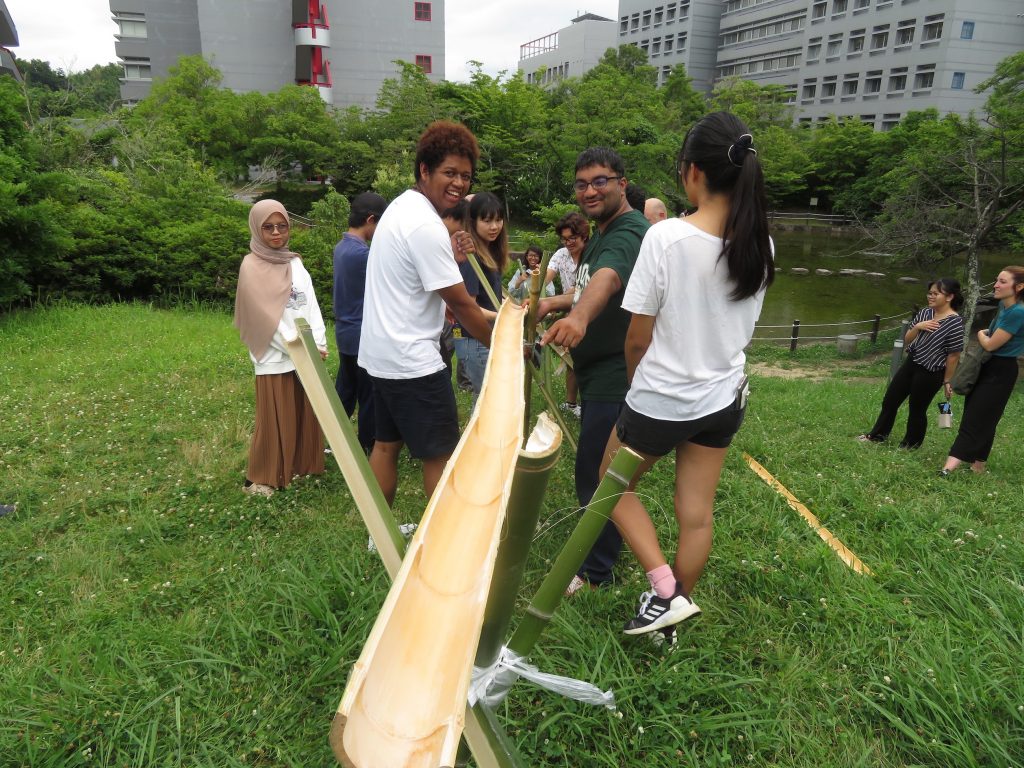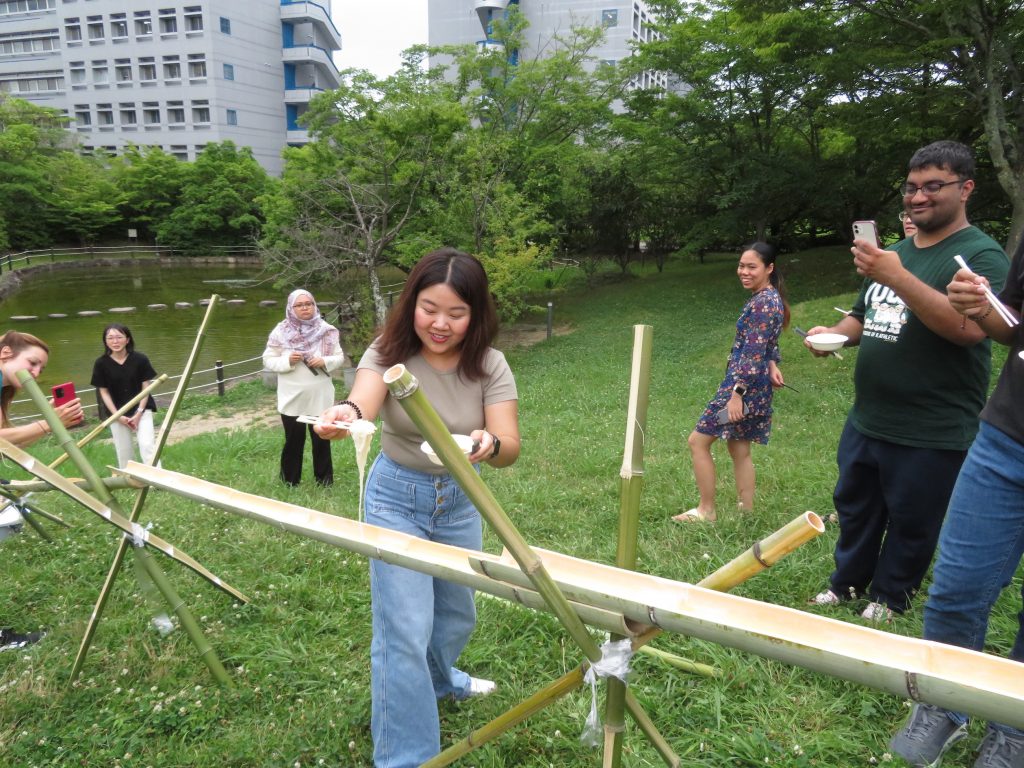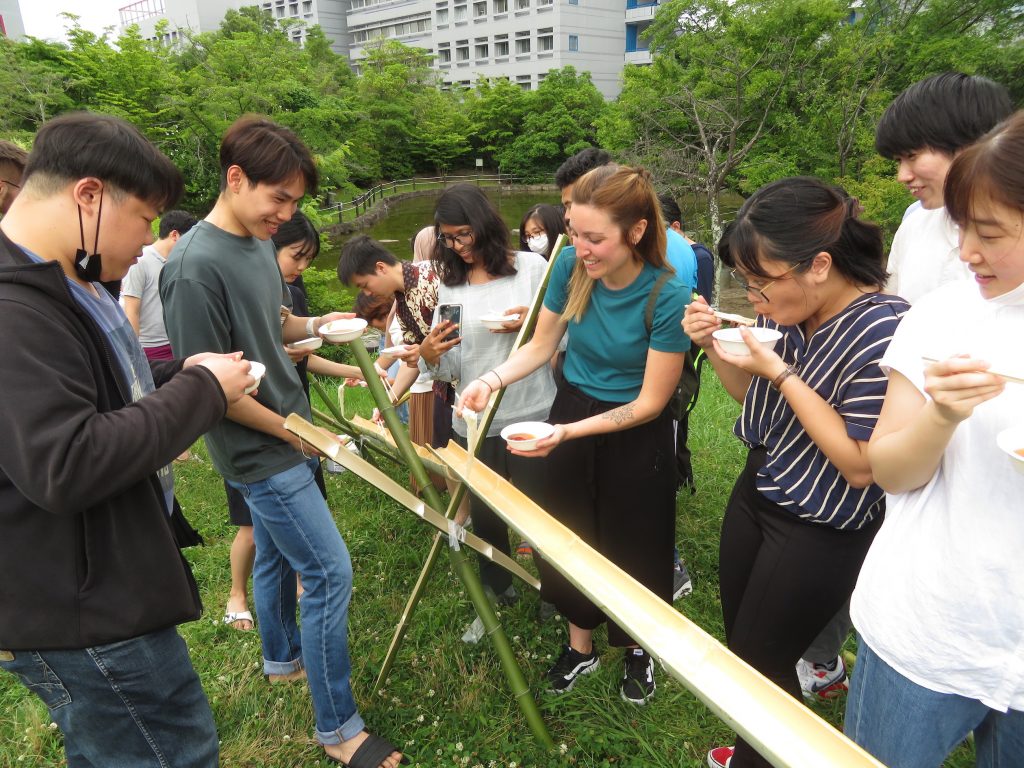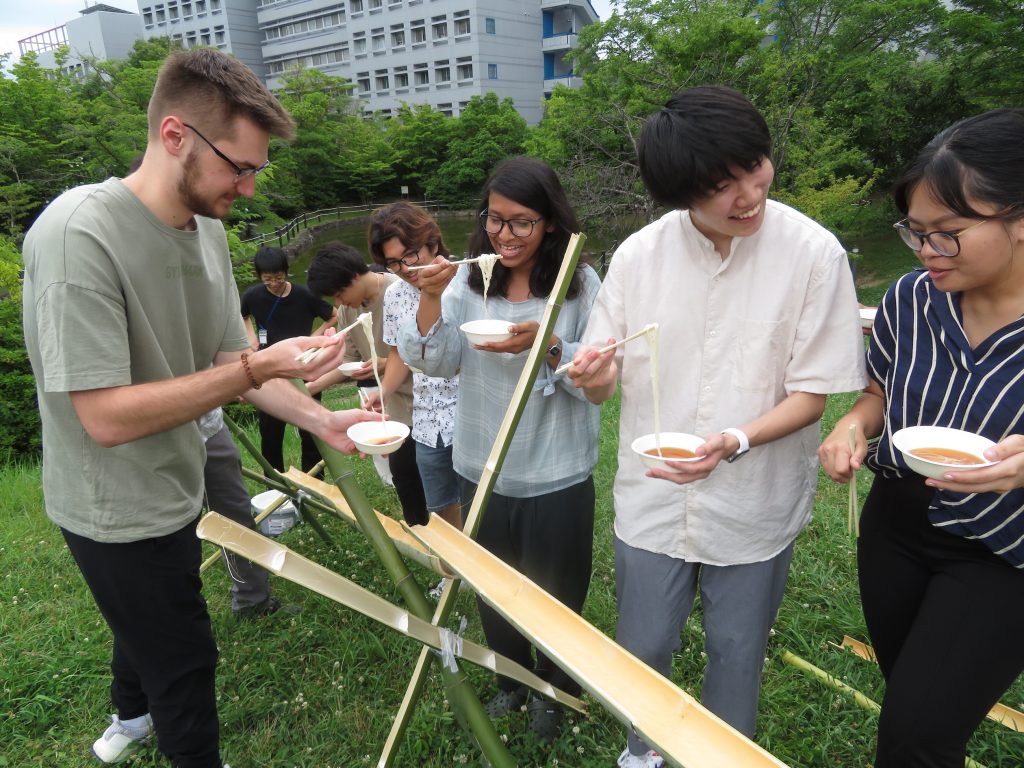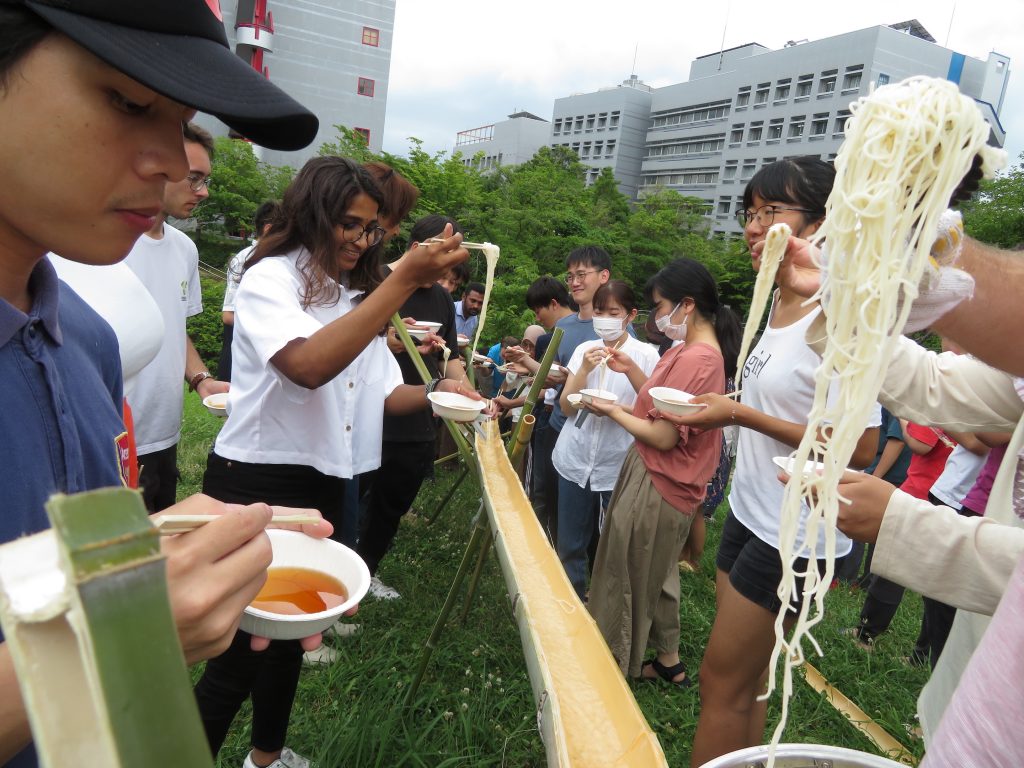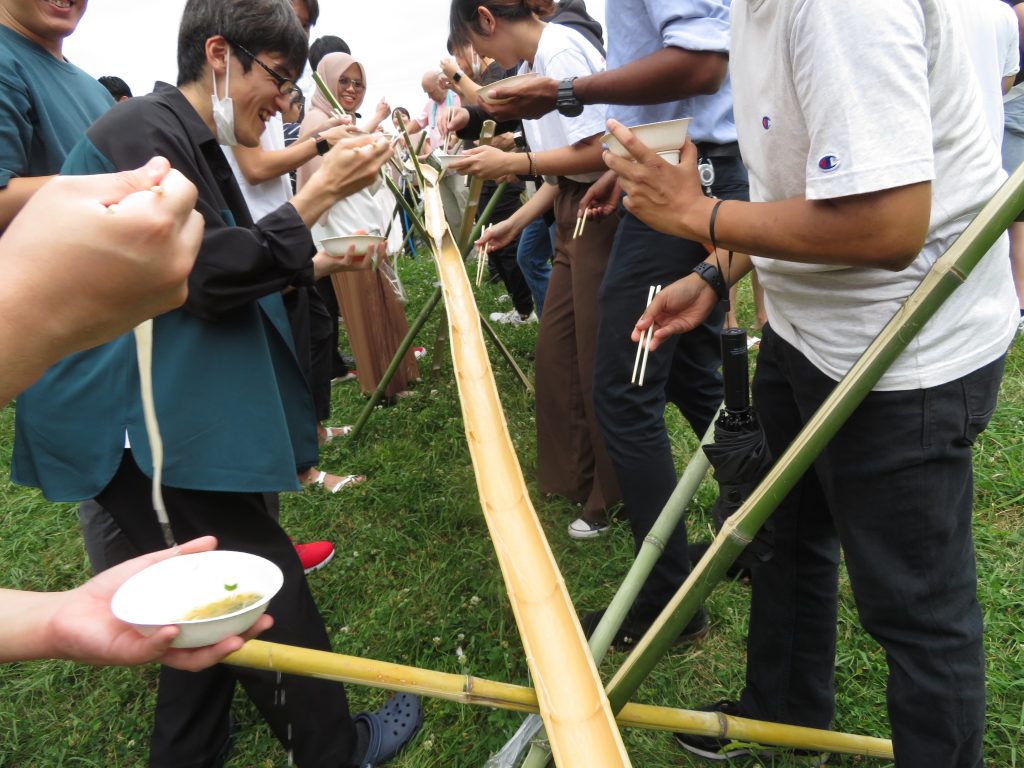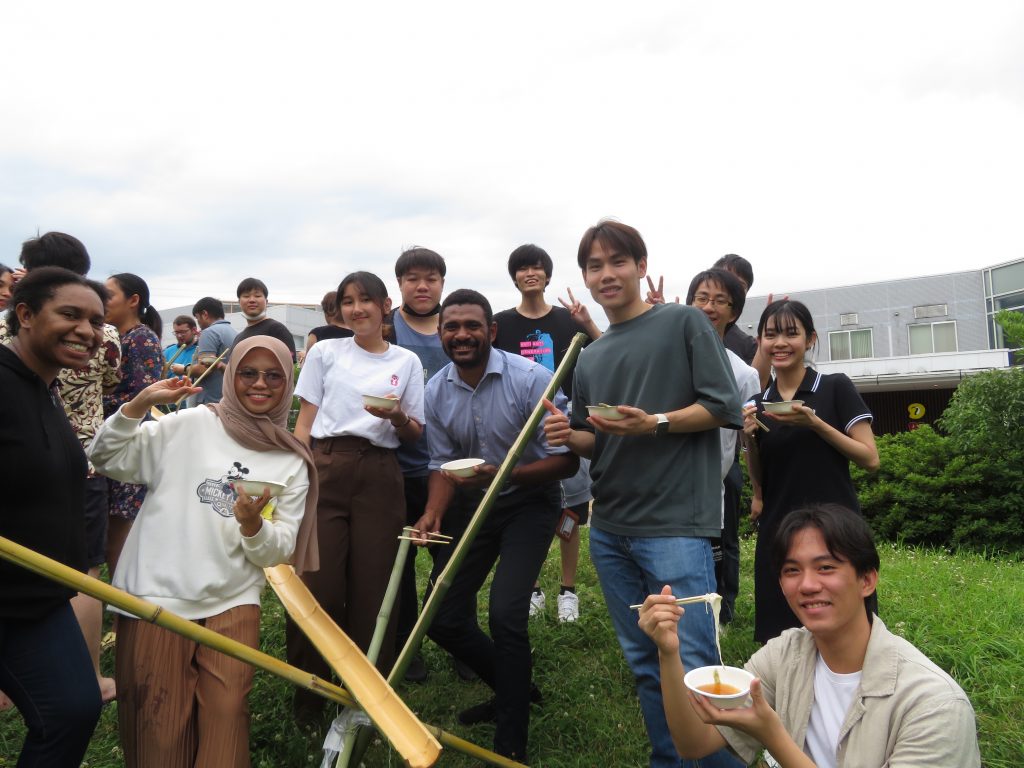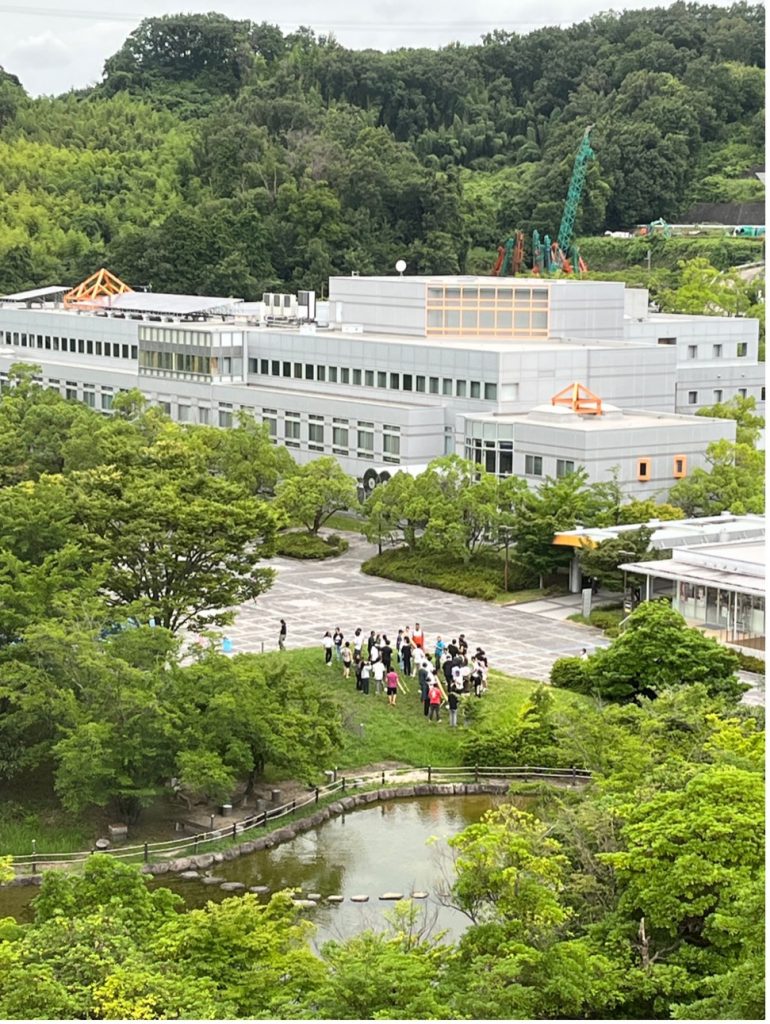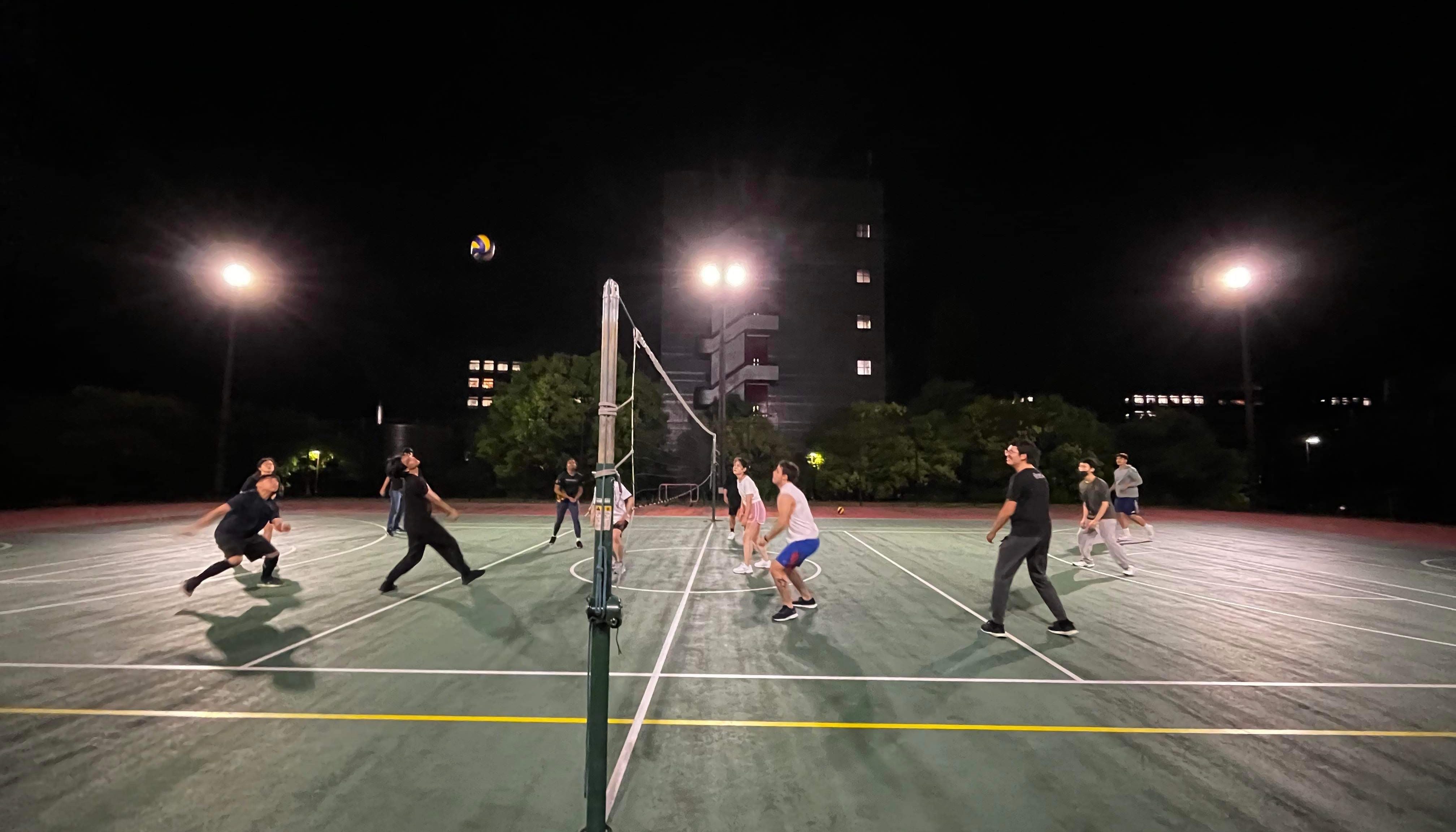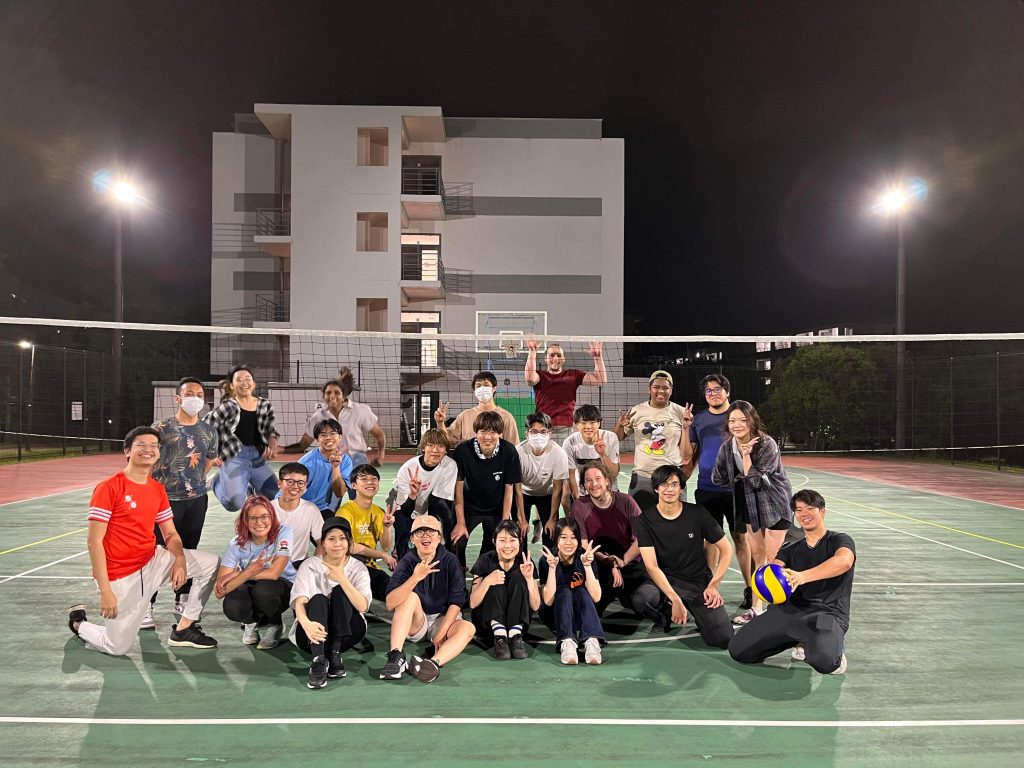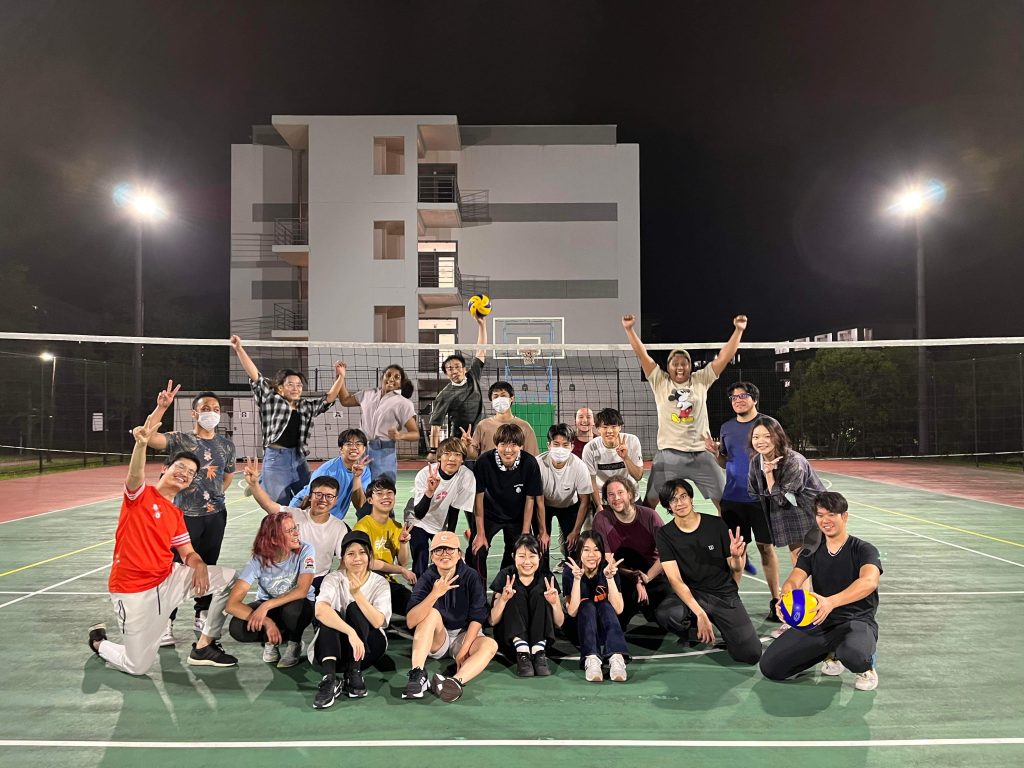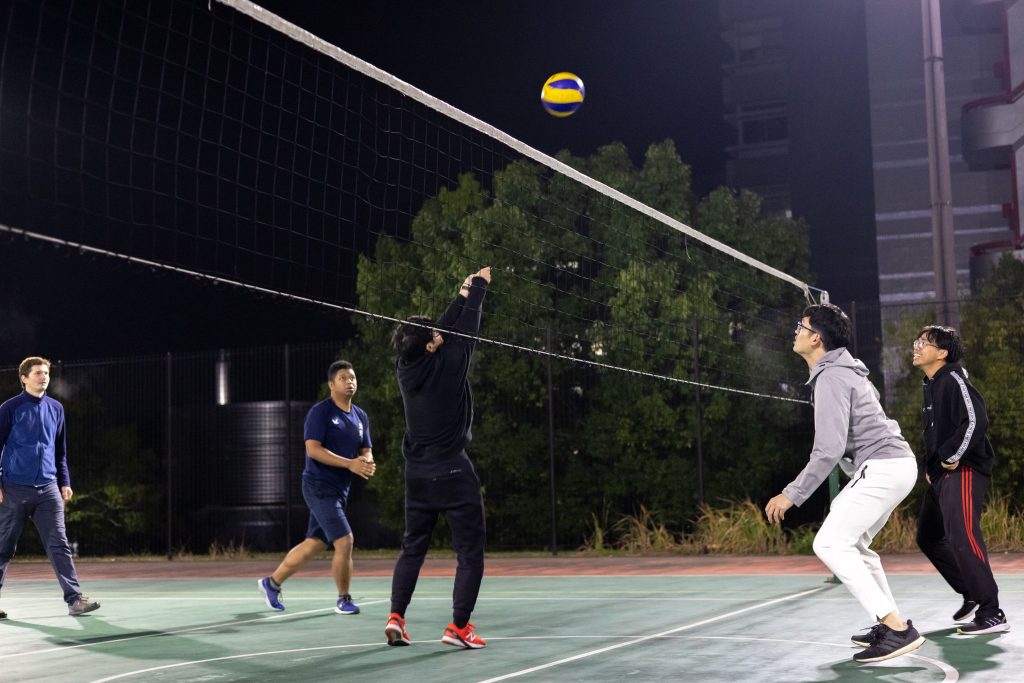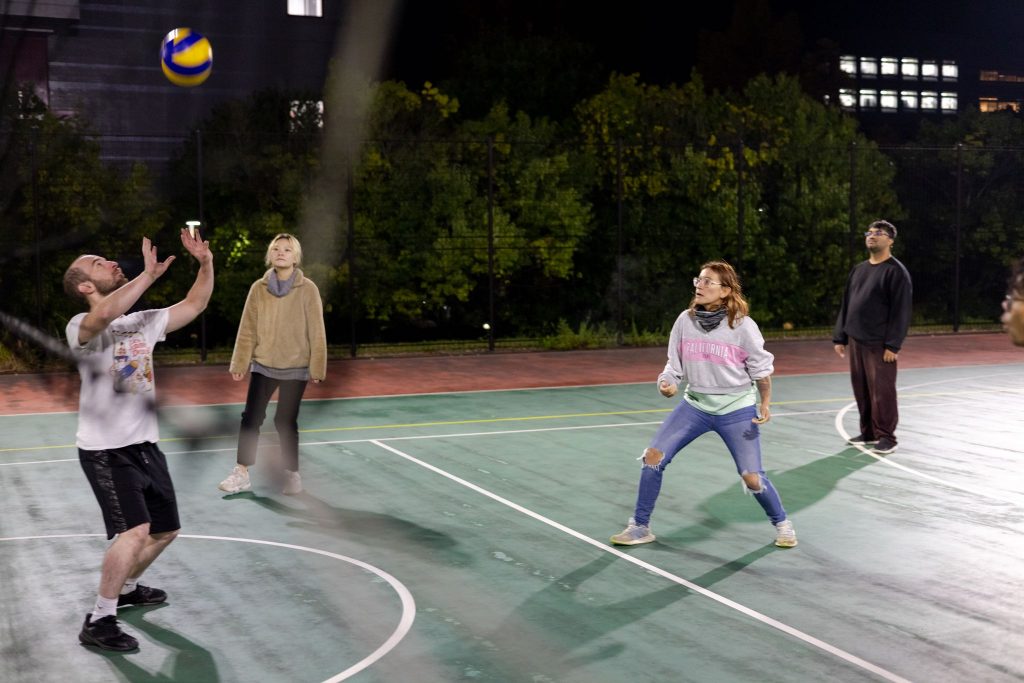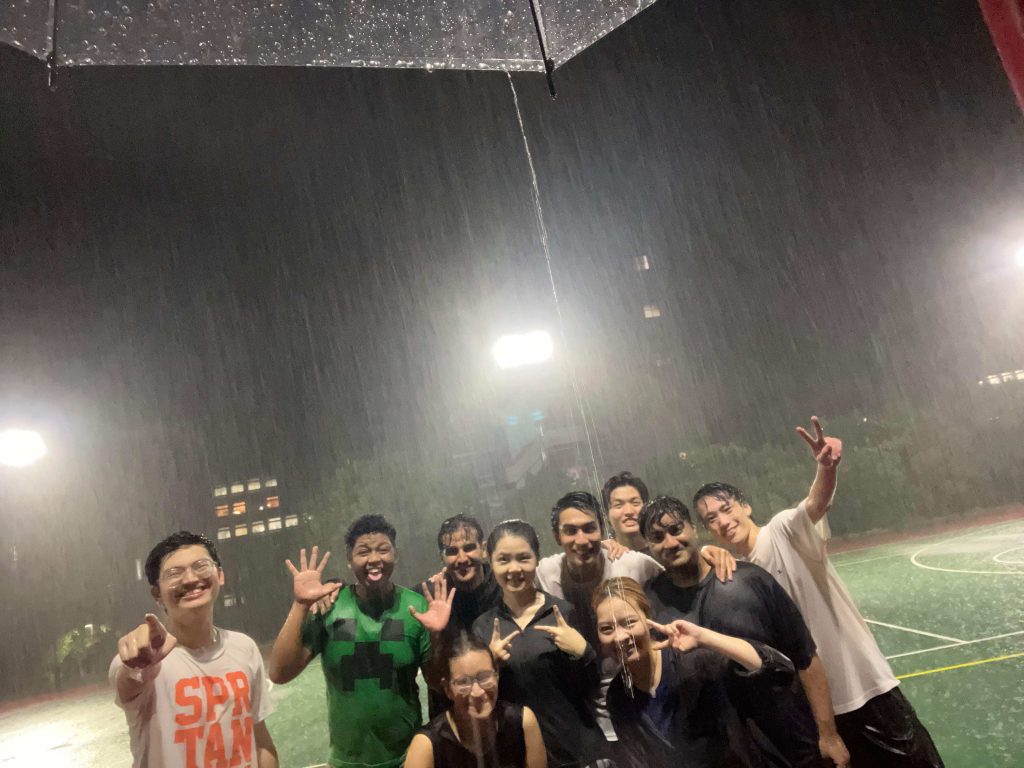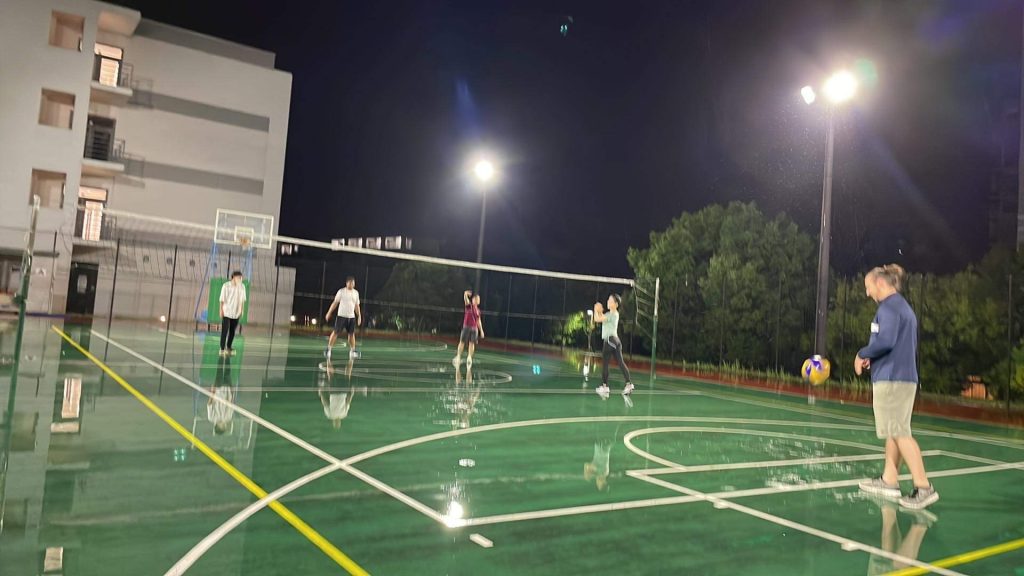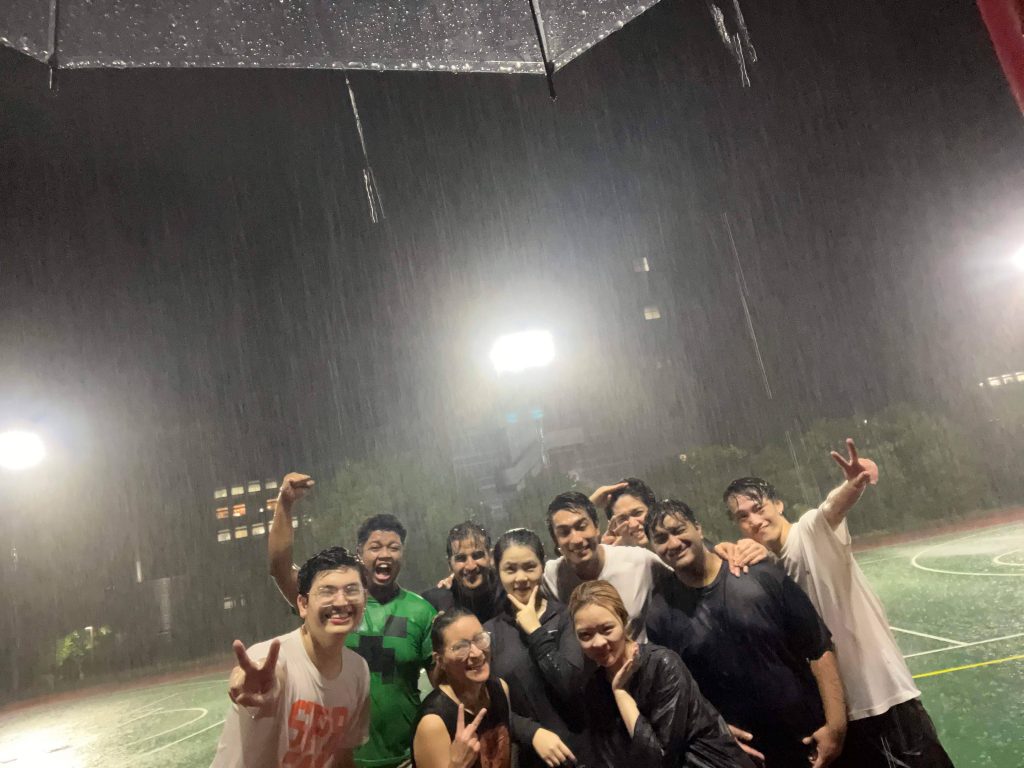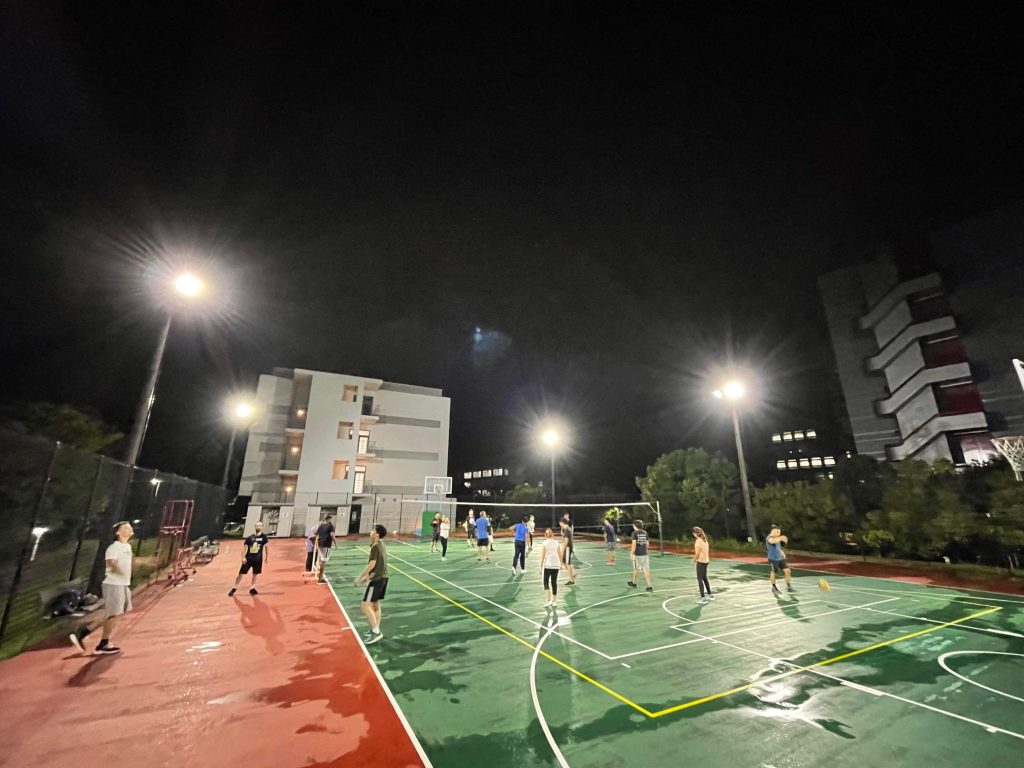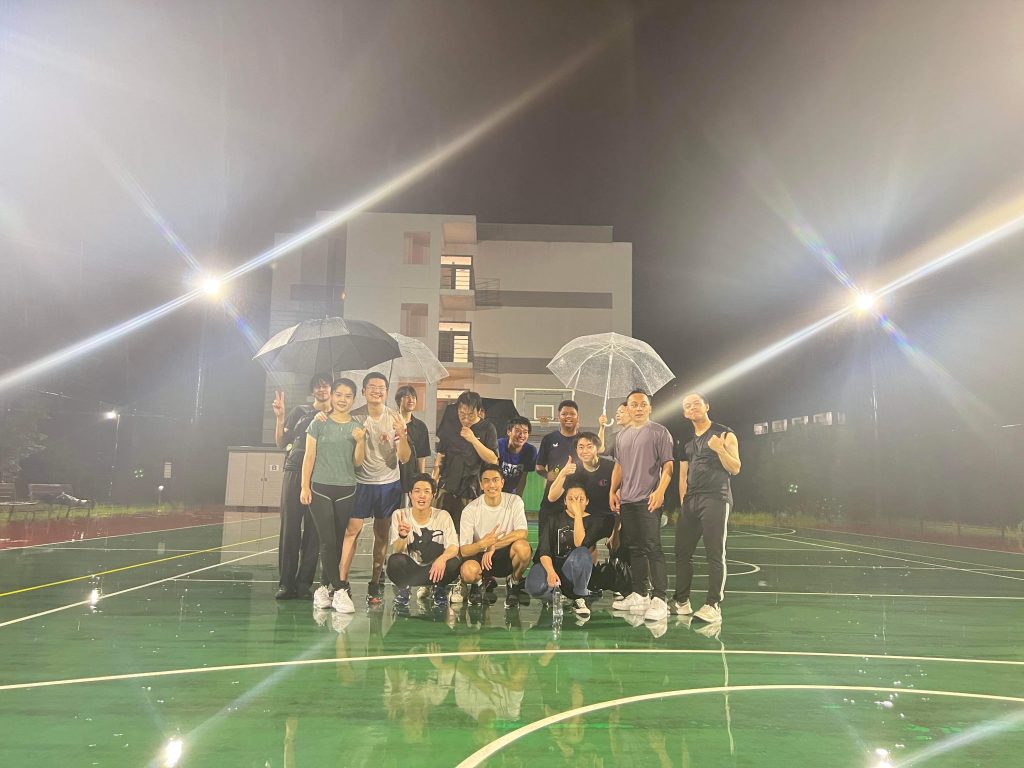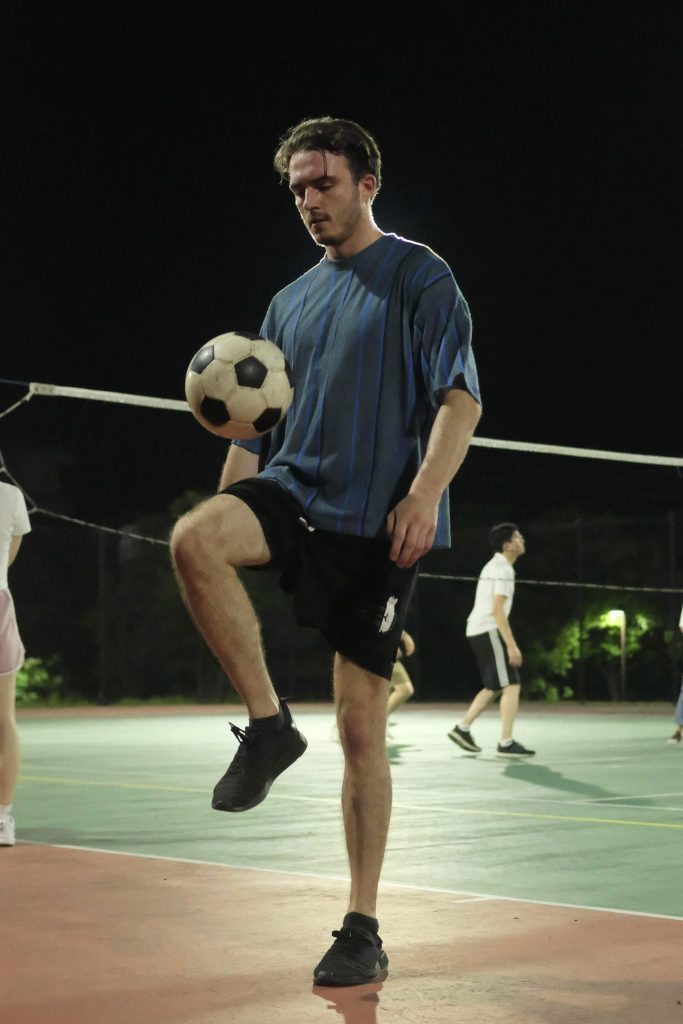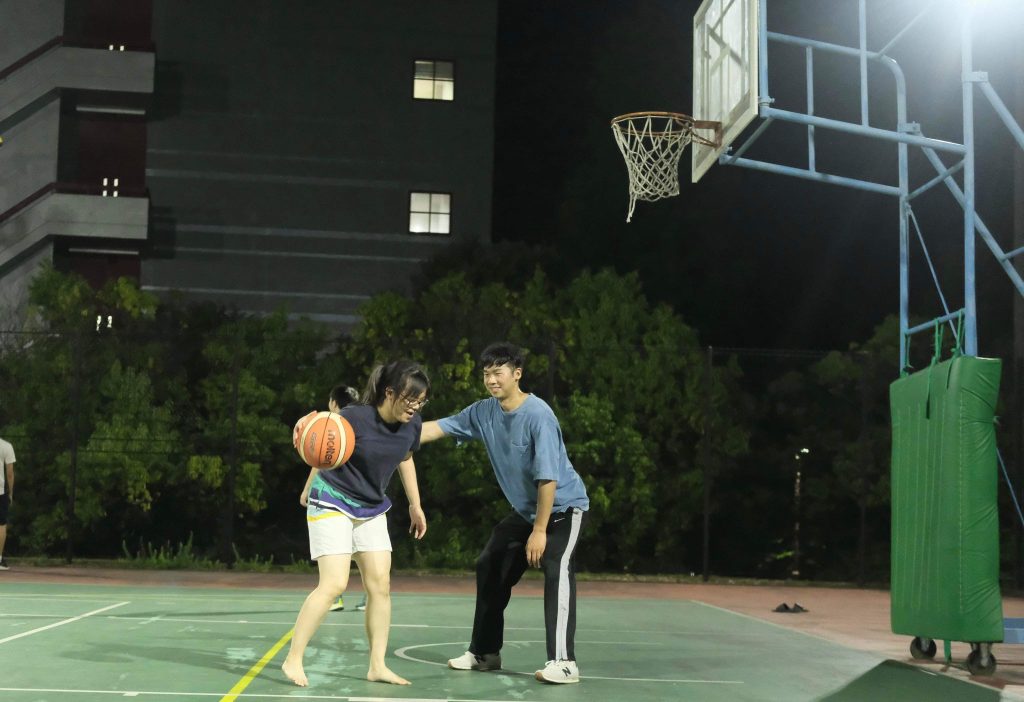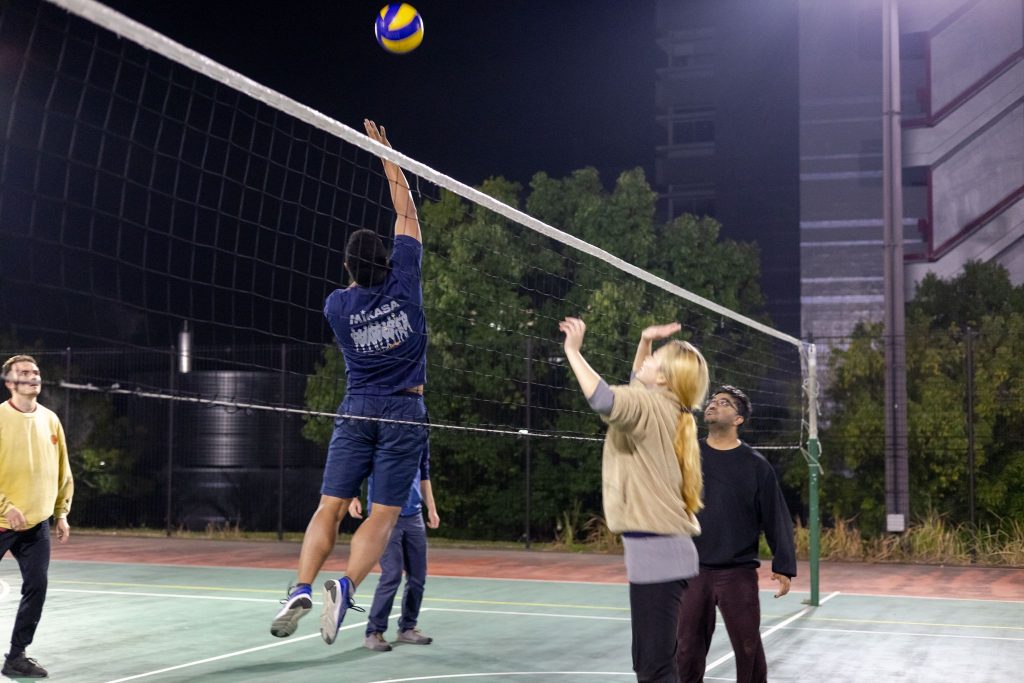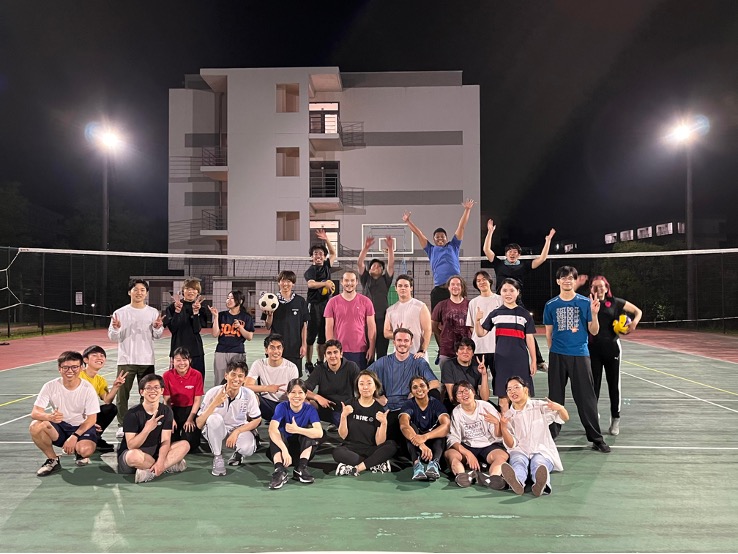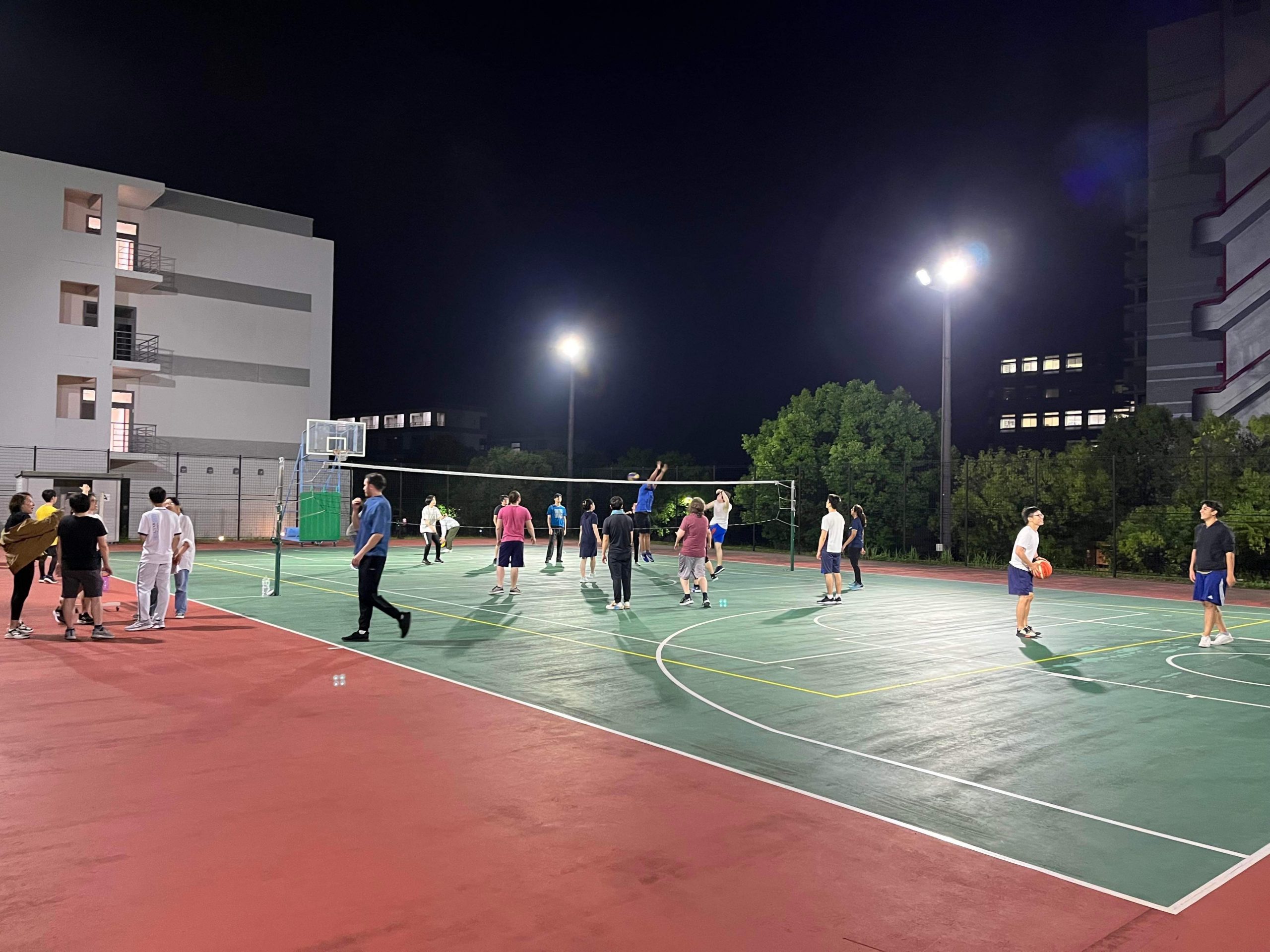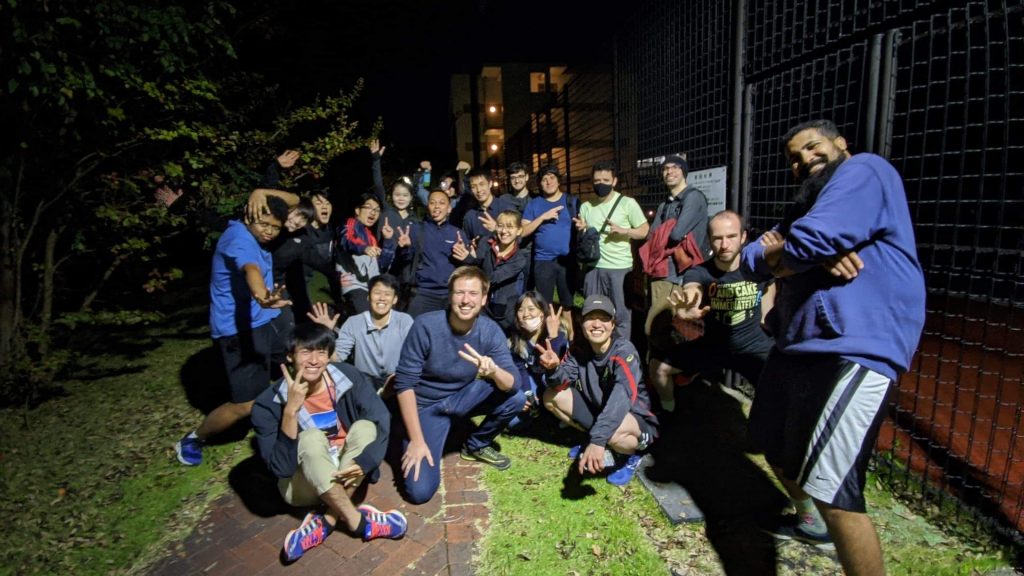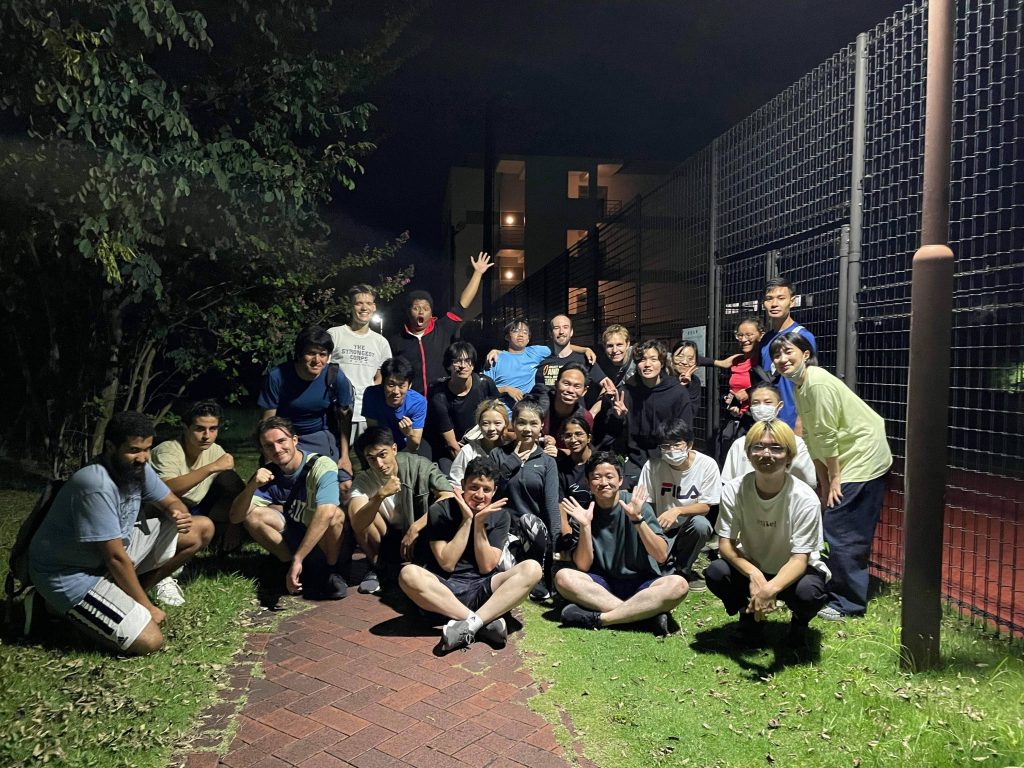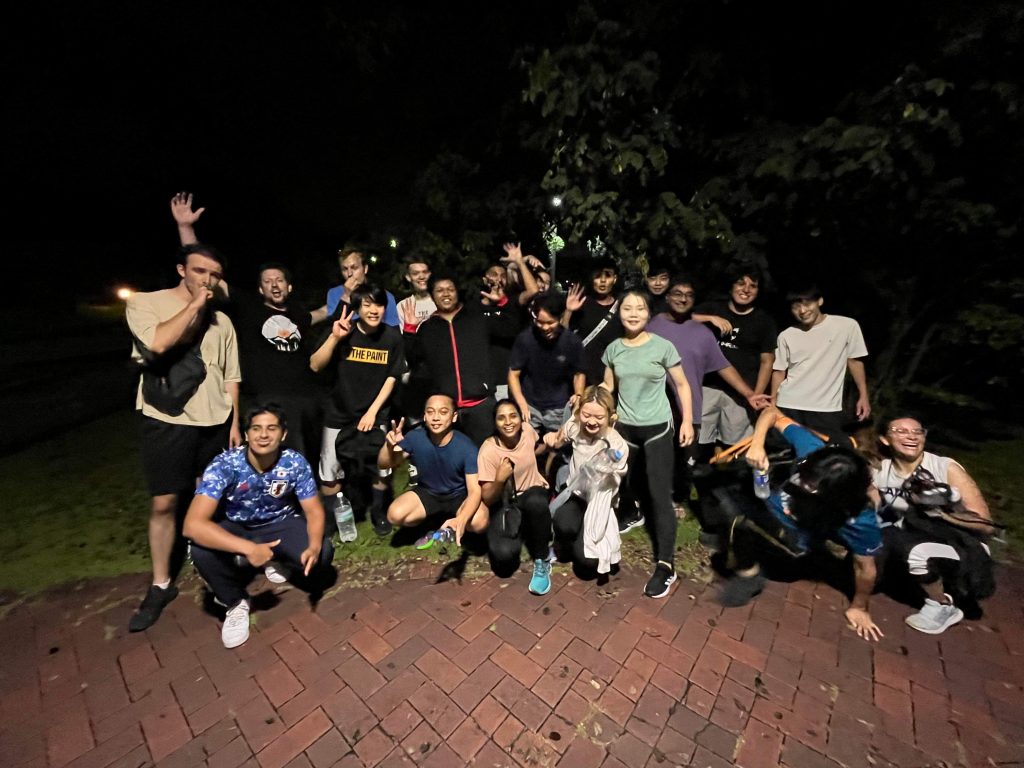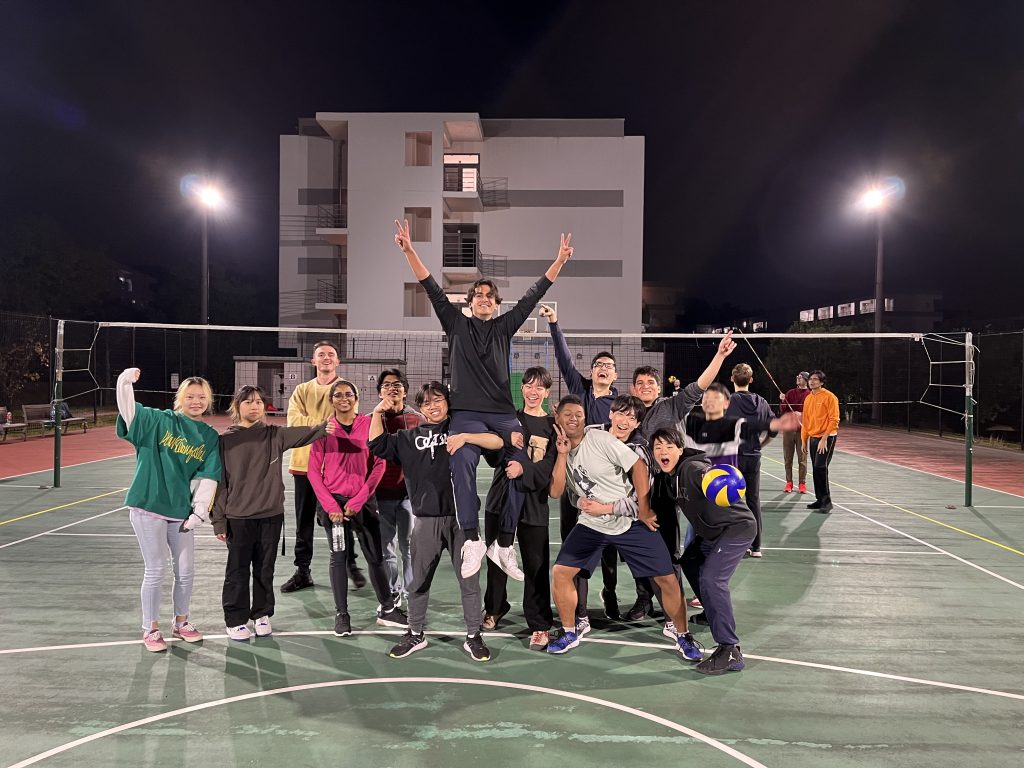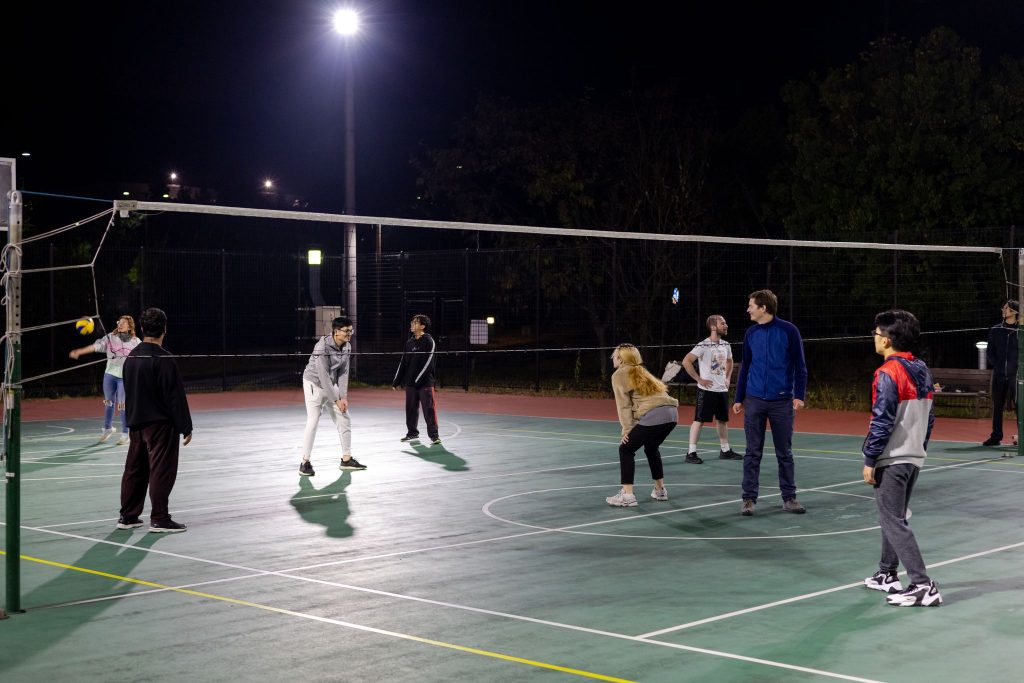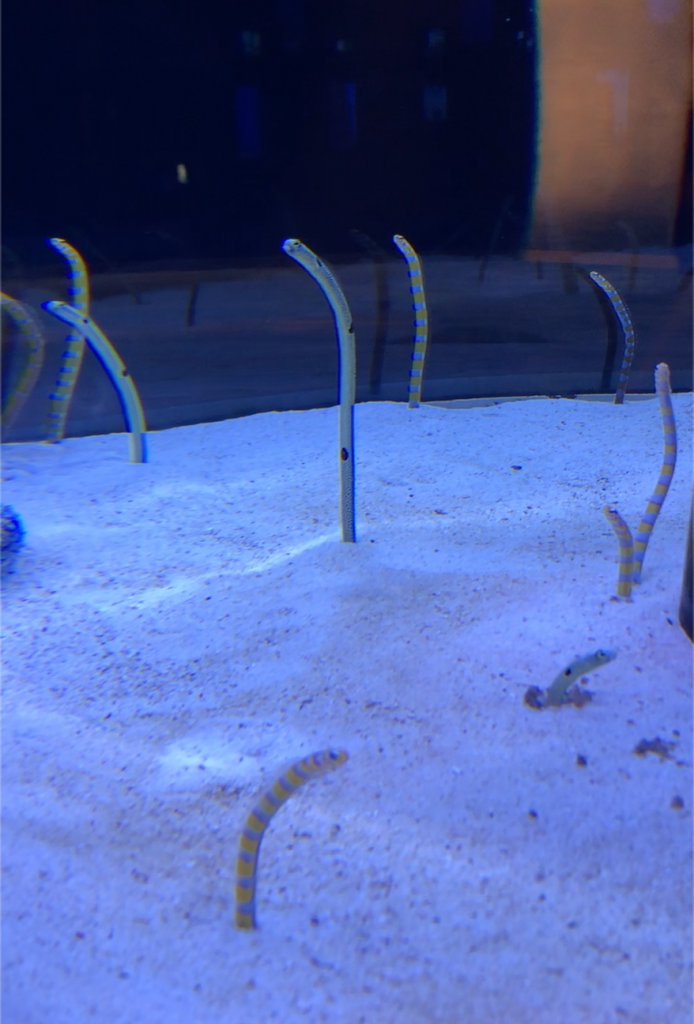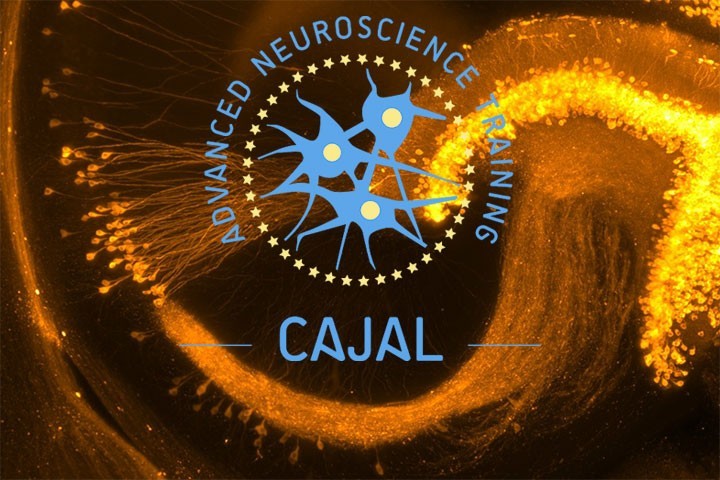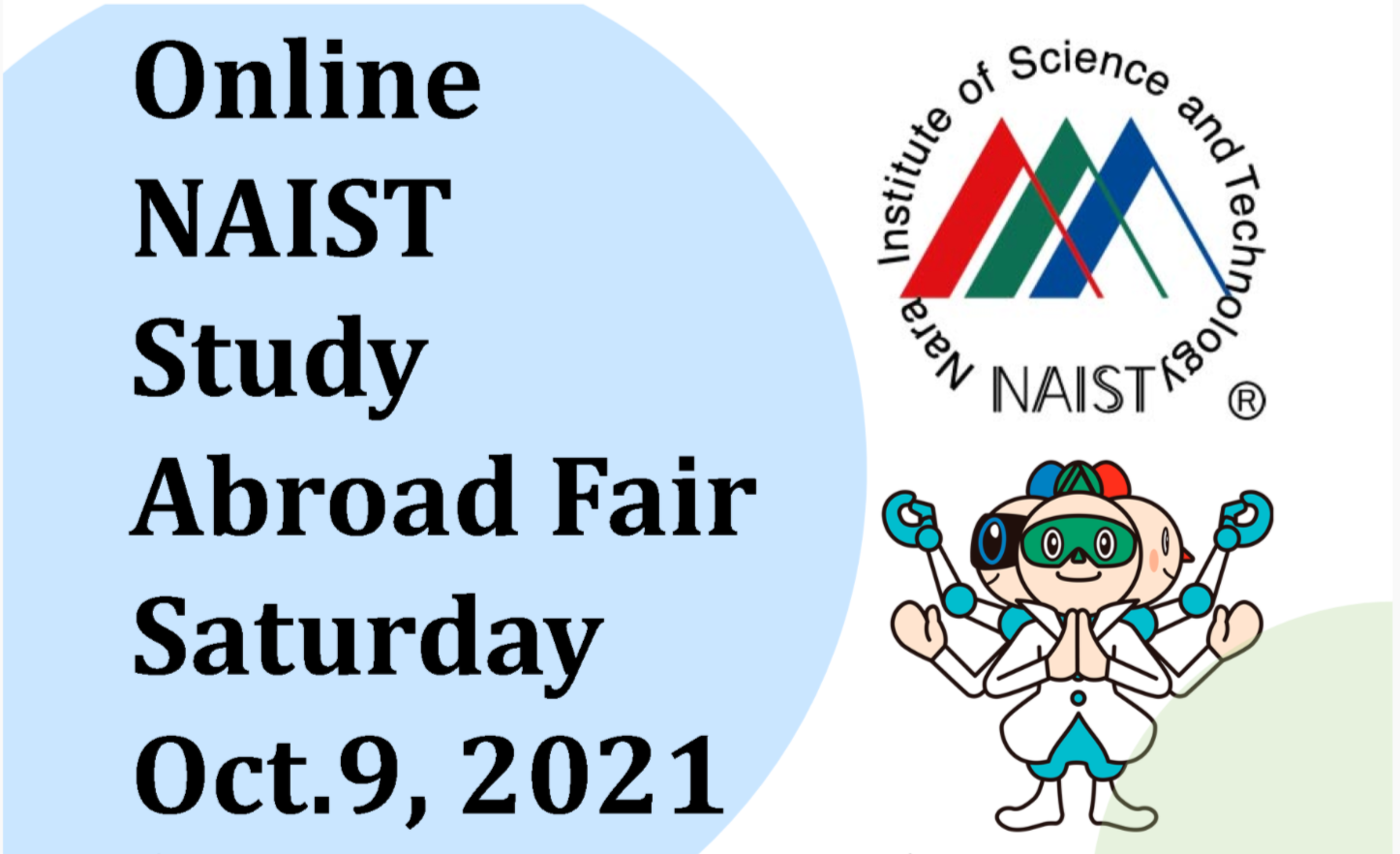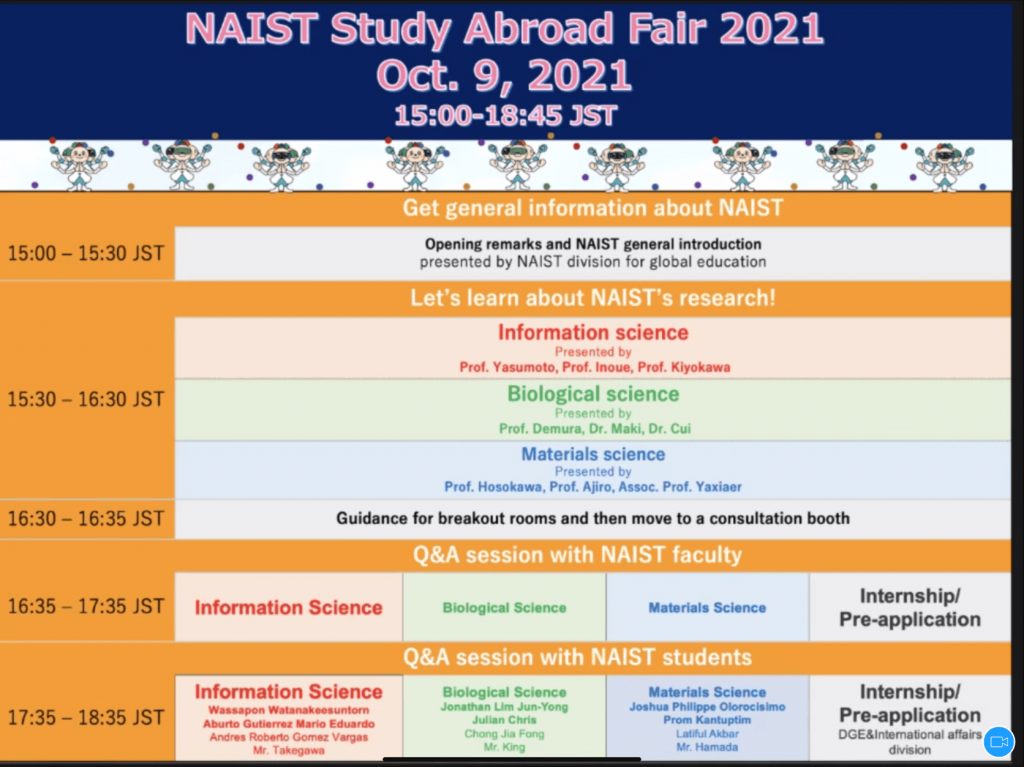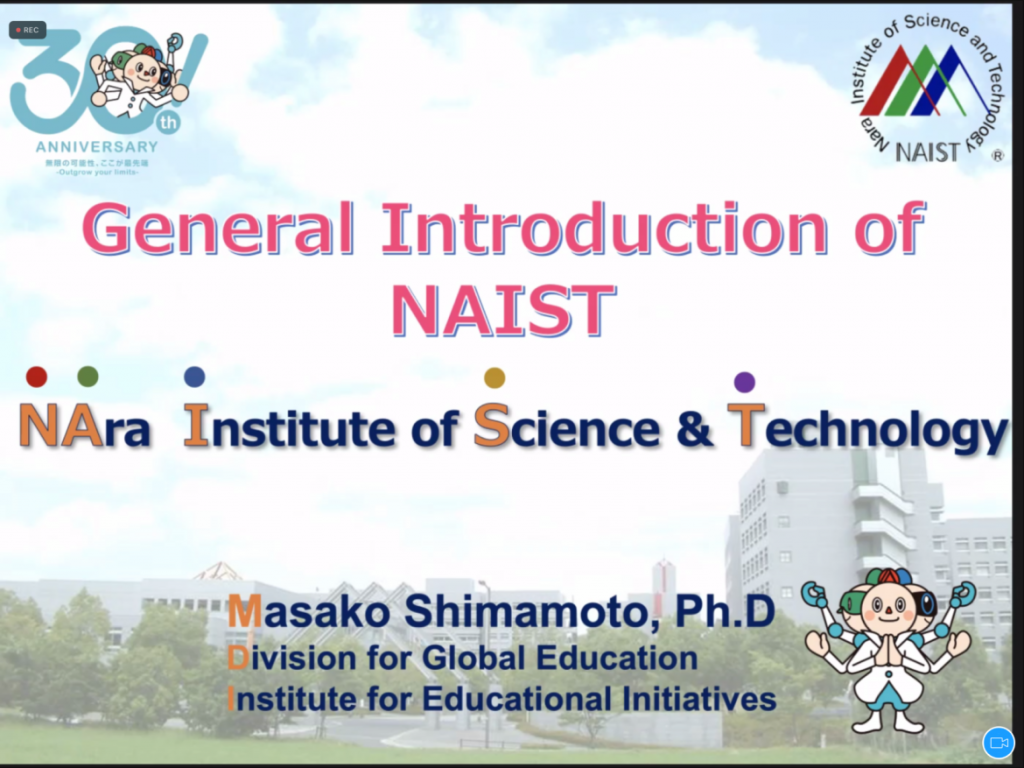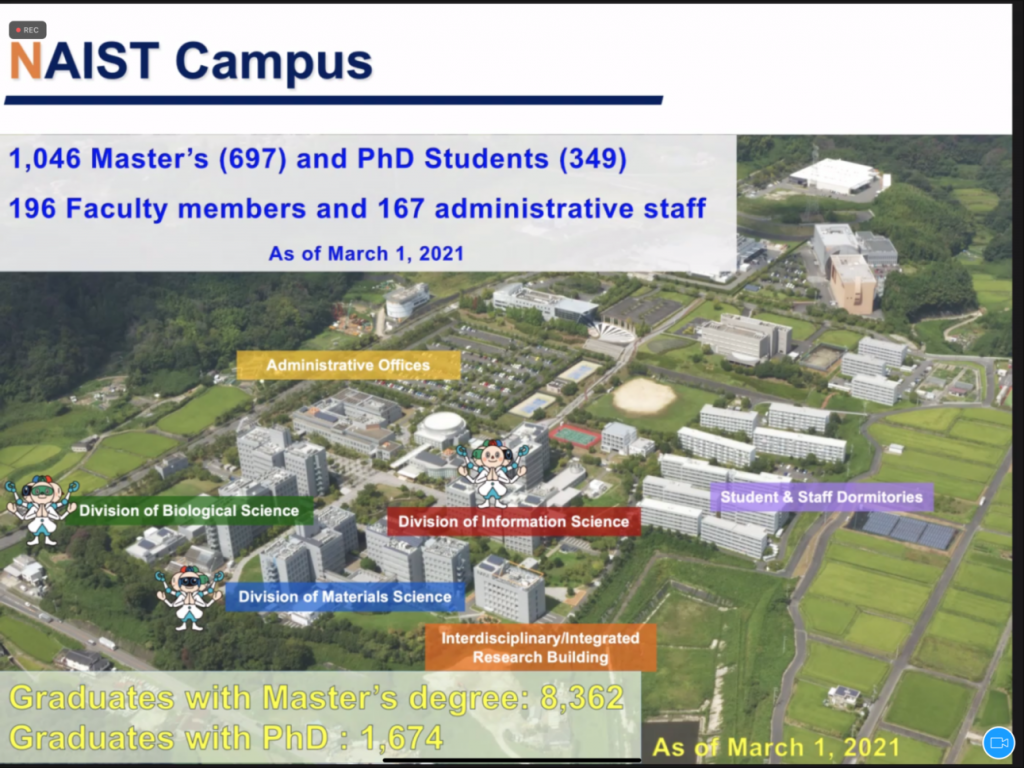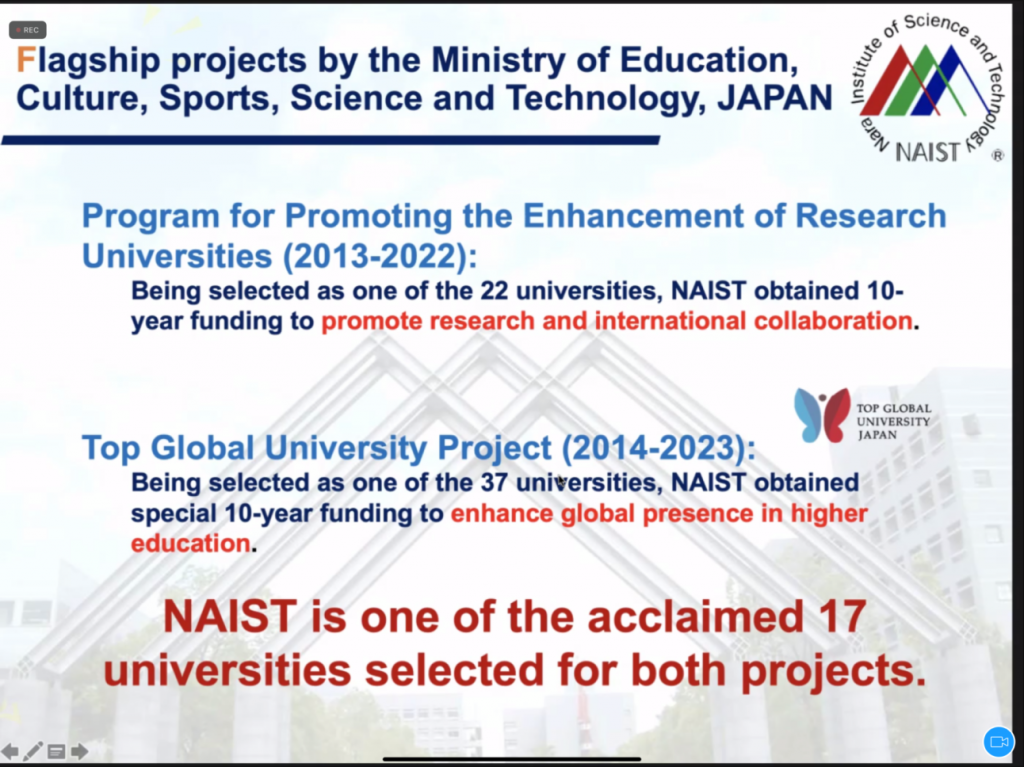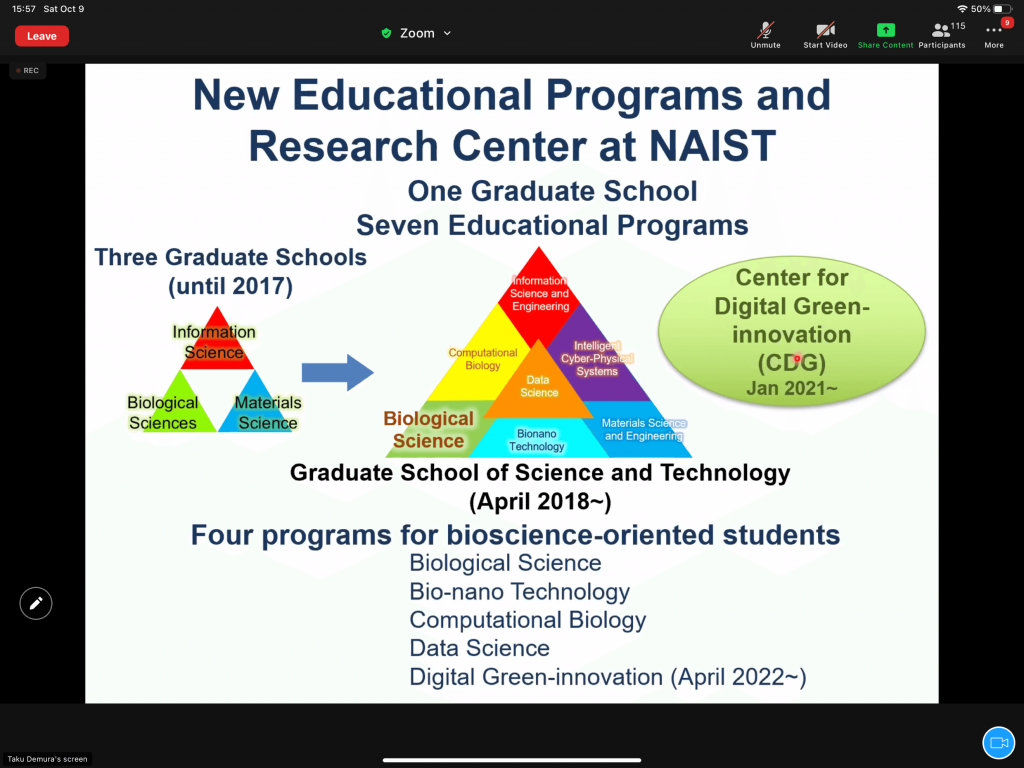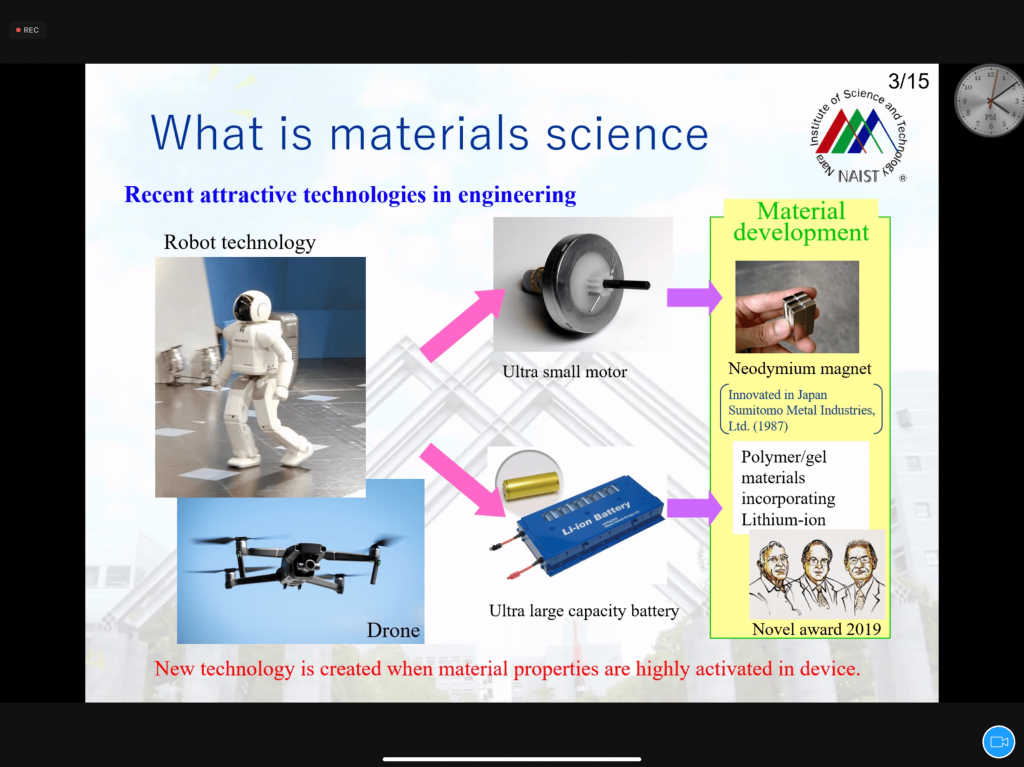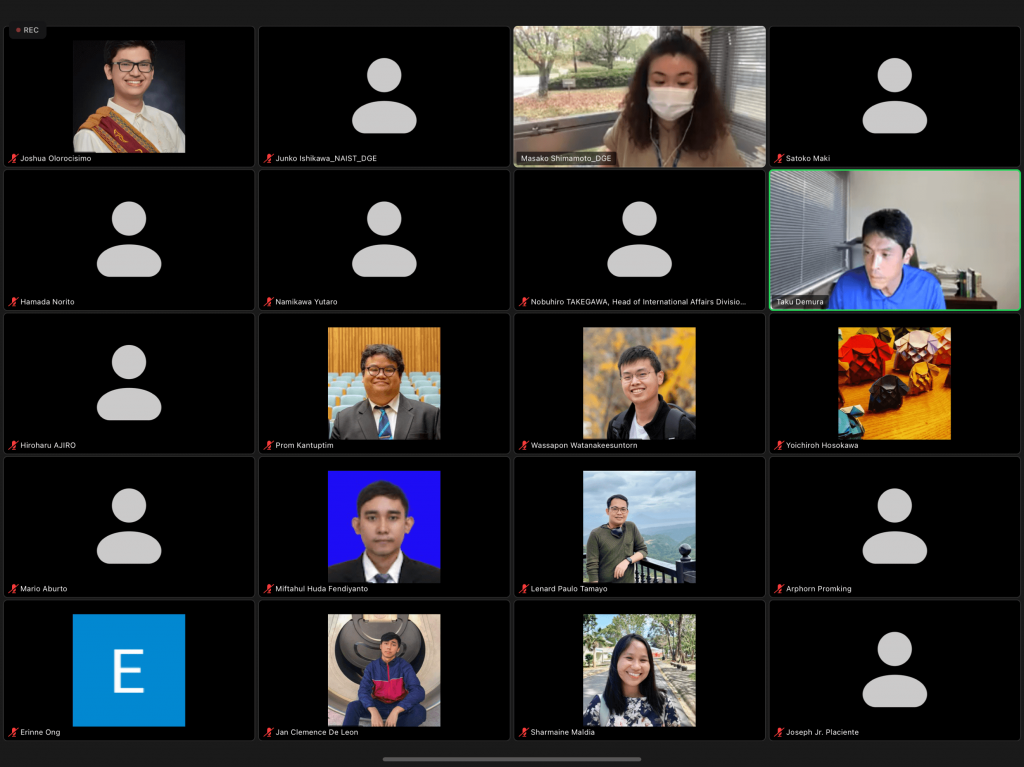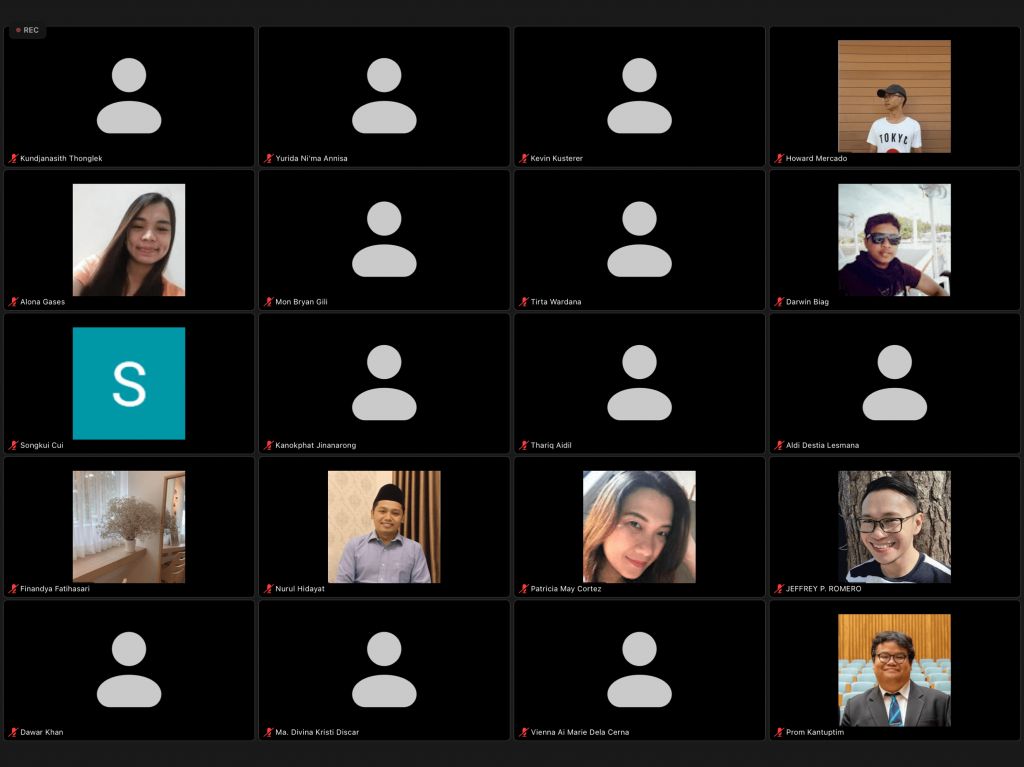Kundjanasith Thonglek or “Tem”, as he is fondly known, is not your average doctoral student. With a passion for robotics and artificial intelligence (AI), he carves his path toward making significant strides in technology and education. Let’s delve into Tem’s remarkable journey.
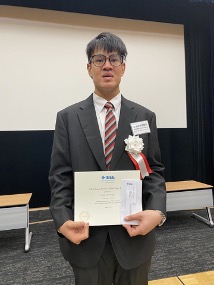
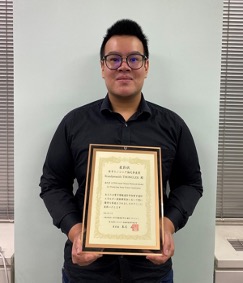
The NAIST Opportunity: A Turning Point
Tem’s fascination with robotics began in his high school years. This profound interest would lead him down a remarkable path in the world of technology. During his undergraduate studies at Kasetsart University, Tem was introduced to a pivotal opportunity through his previous supervisor. He attended the Pragma workshop at Kasetsart University that unveiled the enticing prospect of an internship at the prestigious Nara Institute of Science and Technology (NAIST). This experience was pivotal as it exposed him to the academic environment, introduced him to inspiring mentors (or ‘sensei’ in Japanese), and immersed him in the rich tapestry of Japanese culture.
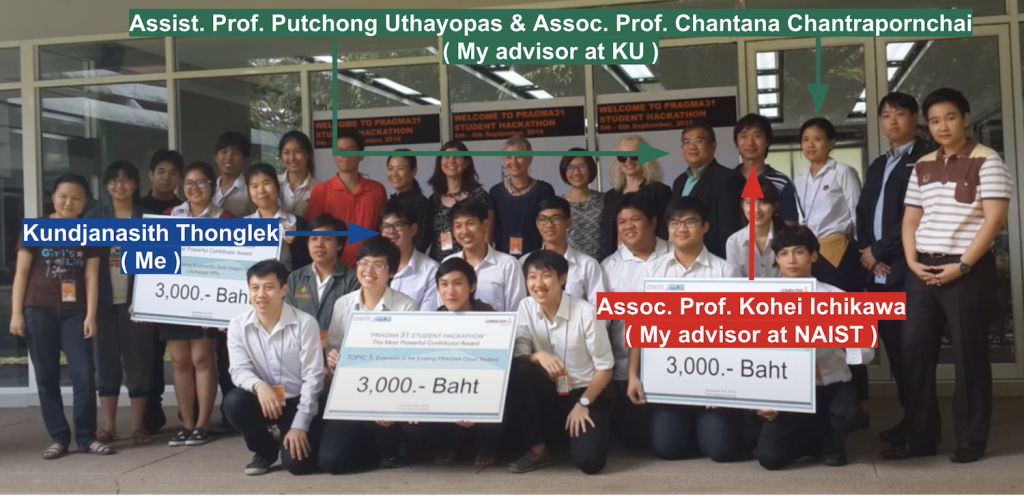
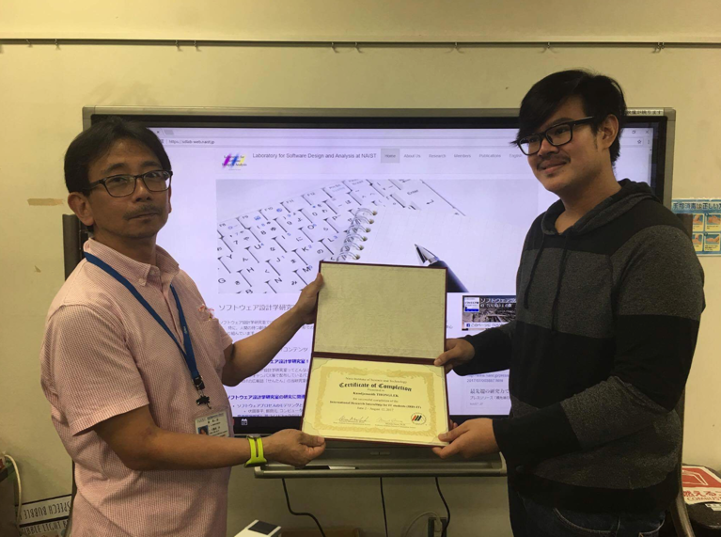
A Scholar’s Odyssey: From Bachelor’s to Doctorate
His academic voyage continued as he embarked on his master’s degree, financially supported by the esteemed MEXT Scholarship, which he received by the recommendation of his university. Specializing in Information Science at NAIST, he aimed to understand the dynamics of resource utilization, primarily for high performance computing, and fostered an unshakable belief in the potential of AI technology and data privacy.
Tem’s academic career reached new heights during his doctorate studies. Initially, he was granted the MEXT Scholarship during his first year, a testament to his dedication and academic prowess. In the second year, his journey took an exciting turn as he secured the prestigious JSPS scholarship.
A Passion for Robotics from High School to PhD
From an early age, Tem harbored a fascination with robotics, particularly in the domain of underwater robotics. His pioneering work involved the development of robots designed for energy and industrial applications, such as inspecting pipelines beneath the ocean, eliminating the need for human intervention. His pursuit of making robots smarter with AI led him to recognize the importance of data and high-performance computing.
During his master’s program, Tem focused on resource utilization for high computing and developed a profound faith in the capabilities of AI while remaining committed to the principles of data privacy.
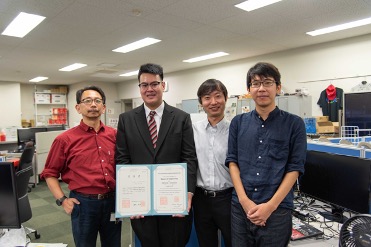
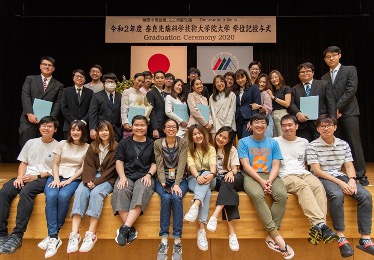
The crux of Tem’s doctoral research lies in creating an infrastructure to surmount the data privacy challenges that act as barriers to AI development. He delved into machine learning models, dataset security, and model architecture. His innovative approach involved using GitHub and DockerHub as a means to eliminate the need for sharing data storage and training. Tem’s work takes on an added significance as it aligns with the global trend of federated learning, a machine learning technique aimed at training models without the necessity of sharing datasets.
LiberatAI: A Vision of Global Significance
While working on his doctorate, Tem was involved in a groundbreaking project – ‘LiberatAI.’ The core of this initiative is to make AI technology more accessible to people worldwide. The driving idea of this project is to transfer models rather than the traditional method of sharing data. The main challenge is shifting the training process from the server side to the client side while addressing the limitations of each client.
A Visionary with Goals
In addition to his academic pursuits, Tem’s role as the President of the Thai Students Association in Kansai underscores his leadership skills and commitment to promoting cultural exchange.
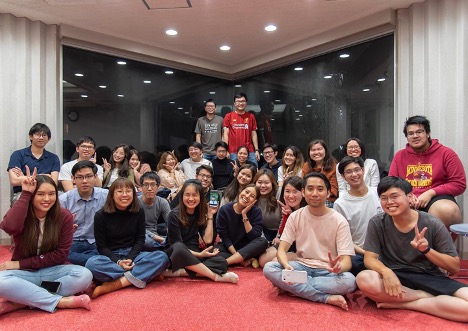
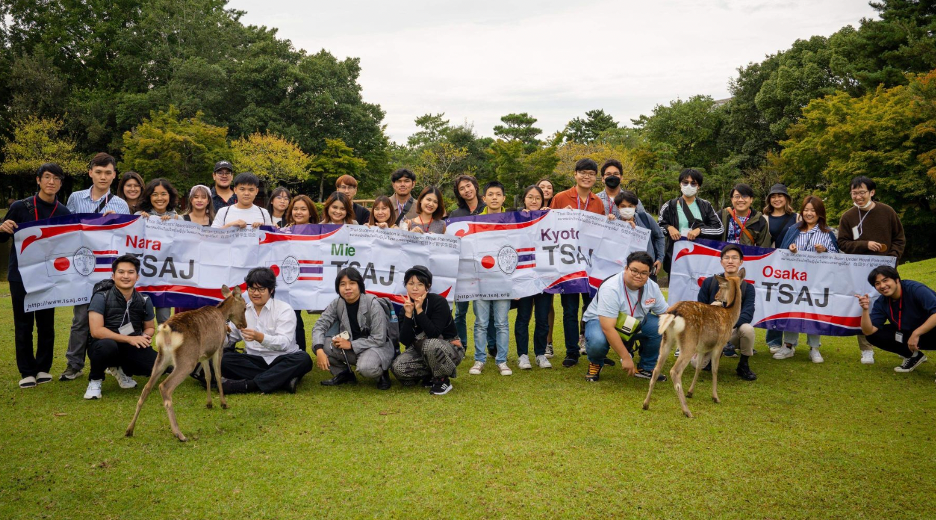
Tem’s goals are not limited to personal achievements. His immediate aim is to gain experience and build networks in Japan that he can bring back to Thailand, where he hopes to address the challenges of education. His dream is to ‘liberate education,’ and his vision is nothing short of revolutionary.
Tem’s journey so far has been remarkable, and his dedication to robotics, AI, and global education is a testament to the potential of young scholars and their capacity to make a lasting impact. With his dreams firmly rooted in academia, Tem aspires to become a professor, bridging the gap between advanced technology and accessible education.
And now, as a specially appointed assistant professor at the Applied Information Systems Research Division, Cybermedia Center, Osaka University, Tem’s journey continues to evolve and inspire. In a world where innovation and education are paramount, Tem’s story serves as an inspiration for the young and a reminder that passion, dedication, and the pursuit of knowledge can lead to groundbreaking achievements.

